- How it works


Corporate Governance – A Case Study of Tesco Accounting Scandal 2014
Disclaimer: This is not a sample of our professional work. The paper has been produced by a student. You can view samples of our work here . Opinions, suggestions, recommendations and results in this piece are those of the author and should not be taken as our company views.
Type of Academic Paper – Case Study
Academic Subject – Governance
Word Count – 1700 words
Introduction
In present times, the subject of corporate governance is the most crucial one and a large number of corporate scams have recently been reported. This is due to a lack of attention paid by the board of directors, auditors, and other regulatory bodies, making it problematic for shareholders and stakeholders of a company to think strategically for the betterment of the company.
According to Bebchuk, Cohen, and Ferrell (2008, p.783), corporate governance is defined as the set of rules and regulations, and practices that can be implied on the company so as to control the business operations. The corporate governance of a company is mainly concerned with maintaining a balance between the company operations and the interests of stakeholders and shareholders of a company (Bhagat and Bolton, 2008, p.257).
However, there are recent additions in the corporate governance scams amongst which the accounting scandal of Tesco PLC 2014-2015 is the most prominent one. The aforementioned UK retailing business came under the regulatory scanner because of the scandal of overstating the profits of the company; where nearly around £263 million worth of profits were overstated (TheGuardian.com, 2014).
This essay highlights the lack of corporate governance while exploring major loopholes in the corporate structure of the company which resulted in this major accounting scandal. A conclusion is presented in the end while summarising major findings of the essay and effective recommendations are presented in this essay for the companies to avoid such corporate governance failures in the future.
Overview of the case
In the year 2014, Tesco, UK’s largest retailing giant, was plunged deeper into the crises which resulted in the suspension of four senior executive directors of the company. The suspension was followed by the scandal of overstating the company profits by £250m (TheGuardian.com, 2014). Tesco had overstated the first-half profits of the company to be £1.1bn, but later on, it was revealed that the company had experienced a profit of £263m. This overstatement of the profits in the forecasted profit figures was to attract shareholders and to increase investments and funds to the retailer (FinancialTimes.com, 2014).
After the accounting scandal in Tesco PLC, the legal authorities and board of directors significantly took this matter under consideration and wiped off £2bn of the net value from the UK’s biggest retailing company. Following the accounting fraud, Tesco PLC was alleged to pay a £500m fine by the end of the year and more than 125 investors filed against the accounting fraud made by Tesco PLC and claimed that the company had been lying to gain funds and investments (TheTelegraph.co.uk, 2014).
Hire an Expert Essay Writer
Orders completed by our expert writers are
- Formally drafted in an academic style
- Free Amendments and 100% Plagiarism Free – or your money back!
- 100% Confidential and Timely Delivery!
- Free anti-plagiarism report
- Appreciated by thousands of clients. Check client reviews
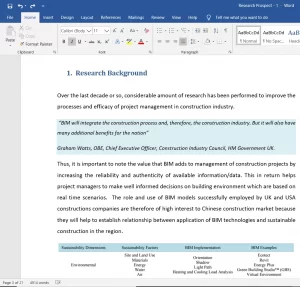
Failure of Corporate Governance
Tesco PLC has been known for its corporate governance framework and its commitment to safety and ethics towards the environment as well as the people. However, the accounting scandal of Tesco PLC in 2014 has been reported to be one of the influential events that declined the overall reputation of the company. Because of this corporate governance failure, several people of the company were suspended including four executives as well that were engaged in the accounting fraud (Awolowo, 2016, p.23).
Moreover, the audit committee and company (Deloitte) were also reviewed and brought under the consideration after the incident. The major corporate governance failure, in this case, is because of the massive process failure of Tesco PLC. More importantly, the resignation of the Chief Finance Office just before the accounting scandal brought the headlines left the company with no CFO (TheTelegraph.co.uk, 2014).
Additionally, the resignation of the CFO followed with the resignation of several other great senior executives which is the case of pure poor corporate governance. The board of directors and the non-executive directors paid no attention to the inflated and overstatement of profits to grab the attention of shareholders.
Similarly, the external audit committee, PwC, and the internal audit committee of the company were equally responsible for their lack of activeness in this matter. However, the EU Audit Directive and Code of Ethics pose a strong push on the internal audit committees of the company, including their role on financing, reporting, and disclosing of honest information to the shareholders and stakeholders of the company (Müller, 2015).
It is evident that the role of the board of directors to have vigilant corporate governance is the prominent one which implies that in order to establish excellent corporate governance, it is necessary that the company board of directors are the key players in maintaining effective corporate governance (Bhagat and Bolton, 2008).
The Board of directors of the company is responsible to establish the key vision and mission of the company while setting strategies to obtain a nominal position in the market (Woods, 2007). However, this is not in the case of Tesco PLC. The board of directors was ignoring the Code of Ethics and EU Audit Directives which led to accounting fraud. Moreover, the board of directors of the company failed to take strategic decisions and raise their voice against the irregularities while focusing their recognition on revenue generation.
According to Ismail (2017), the UK Code of Governance provides provisions for the audit committees as well which ensures that the audit committee of the company is responsible for maintaining integrity in the financial statements of the company, along with reviewing the financial controls, judgments, and operations of the company so as to avoid the mishaps or misstatements in the financial statements.
However, in the case of Tesco PLC, the audit company of the company PwC paid no attention to the misstatement hence this led to the removal of PwC from the external audit committee of Tesco PLC (Müller, 2015). According to Courteau et al. (2017, p.1), the internal and external audit committee of the company is responsible to manage the financial activities such as reporting, external and internal audit, disclosure, and monitoring the regulatory operations of the financials of the company.
However, the audit committee of Tesco PLC has long been avoiding their responsibilities which resulted in the accounting scandal of Tesco PLC in 2014. According to Kukreja and Gupta (2016), the disqualification or resignation of the potential board members also results in the failure of corporate governance. This may be in the case of Tesco PLC. The accounting scandal in 2014 broke out soon before the resignation of the CFO of the company and left Tesco with no supervision of the CFO, however, the scandal led to the dismissal of three responsible board members which included the chairman, Richard Broadbent, and CEO Phillip Clarke as well.
Need an Essay On a Similar Topic?
Corporate governance – a theoretical perspective.
In the light of stakeholder theory, corporate governance can be seen as the collection of policies and principles that are necessary to maintain the morals and ethics of conducting a business while valuing the stakeholders and their interests. According to Courteau et al. (2017, p.1), stakeholders theory is known for its managerial side and declares that the company and the board of directors are responsible to value the interests of the stakeholders while valuing the morals and ethics of conducting the business (Alpaslan, Green and Mitroff, 2009).
In the case of Tesco PLC, the company has failed to value the stakeholders’ interests during the governance process. The board of directors failed to value the interest of their shareholders while disclosing the fake information and overstated the company profits to gin investments and profits from the investors. Similarly, the company audit committee of Tesco PLC also paid no attention to the values of its stakeholders which led to the fraud (TheGuardian.com, 2014).
Lessons Learned
The weak corporate governance structure of Tesco PLC and no attention to the overstatement of profits results in such fraud which not only penalizes the company with extra charges, but it also affects the overall market reputation of the company in the eyes of the shareholders and customers. Because of the accounting fraud of Tesco PLC, it has been evident that the internal and external board of directors of the company are responsible to make strategic decisions for the avoidance of such mishaps in the reporting or disclosure of financial statements (Kukreja and Gupta, 2016).
Moreover, it is also recommended that the company must be including effective regulations and viable accounting practices so as to avoid such fraud. Similarly, good leadership and governing practices should also be incorporated within the corporate governance of the company in order to keep the employees on track to meet organisational goals while meeting and valuing the stakeholders’ interests and legal rights. If the corporate structure and board of directors of Tesco PLC could have valued the stakeholders’ values and concerns while keeping the personal gains for the company aside, the company might not have indulged in such serious accounting fraud.
As a concluding statement, it has been observed that Tesco PLC has been known for its misstatement of profits in accounting books to grab the attention and investments of the shareholders to increase profits. This has occurred because of a weak corporate governance structure and a lack of attention from the board of directors and audit committee to this issue. Hence it can be recommended that the company should have an effective corporate governance structure with the inclusion of Governance Code provisions and potential board members in order to avoid such frauds and scandals.
- Abdullah, H. and Valentine, B., 2009. Fundamental and ethics theories of corporate governance. Middle Eastern Finance and Economics , 4 (4), pp.88-96.
- Alpaslan, C.M., Green, S.E. and Mitroff, I.I., 2009. Corporate governance in the context of crises: Towards a stakeholder theory of crisis management. Journal of contingencies and crisis management , 17 (1), pp.38-49.
- Awolowo, I.F., 2016. Financial Statement Fraud: The Need for a Paradigm Shift to Forensic Accounting. system , 7 (10), p.23.
- Bebchuk, L., Cohen, A. and Ferrell, A., 2008. What matters in corporate governance?. The Review of financial studies , 22 (2), pp.783-827.
- Bhagat, S. and Bolton, B., 2008. Corporate governance and firm performance. Journal of corporate finance , 14 (3), pp.257-273.
- Courteau, L., Di Pietra, R., Giudici, P. and Melis, A., 2017. The role and effect of controlling shareholders in corporate governance. Journal of Management & Governance , pp.1-12.
- FinancialTimes.com, 2014. Available at: https://www.ft.com/content/71118e80-4a20-11e4-bc07-00144feab7de
- Ismail, I.N., 2017. The Roles of Corporate Governance and its Influances on Risk and Performance: Tesco Plc.
- Kukreja, G. and Gupta, S., 2016. Tesco Accounting Misstatements: Myopic Ideologies Overshadowing Larger Organisational Interests. SDMIMD Journal of Management , 7 (1), pp.9-18.
- Müller, M., 2015. Critical Analysis Of The Financing Policies of Tesco plc.
- TheGuardian.com, 2014. Available at: https://www.theguardian.com/business/live/2014/sep/22/tesco-launches-inquiry-after-overstating-profit-forecasts-by-250m-business-live
- TheTelegraph.co.uk, 2014. Available at: https://www.telegraph.co.uk/finance/newsbysector/epic/tsco/11181686/Tesco-crisis-what-you-need-to-know.html
- Woods, M., 2007. Linking risk management to strategic controls: a case study of Tesco plc. International Journal of Risk Assessment and Management , 7 (8), pp.1074-1088.
DMCA / Removal Request
If you are the original writer of this essay and no longer wish to have the essay published on www.ResearchProspect.com then please:
Request The Removal Of This Essay
Frequently Asked Questions
What is the format of a case study.
The format of a case study typically includes:
- Introduction with background information.
- Description of the case and its context.
- Analysis of the problem or issue.
- Presentation of findings and evidence.
- Discussion of solutions or recommendations.
- Conclusion and key takeaways.
USEFUL LINKS
LEARNING RESOURCES

COMPANY DETAILS

- How It Works

How did the Tesco accounting scandal unfold?
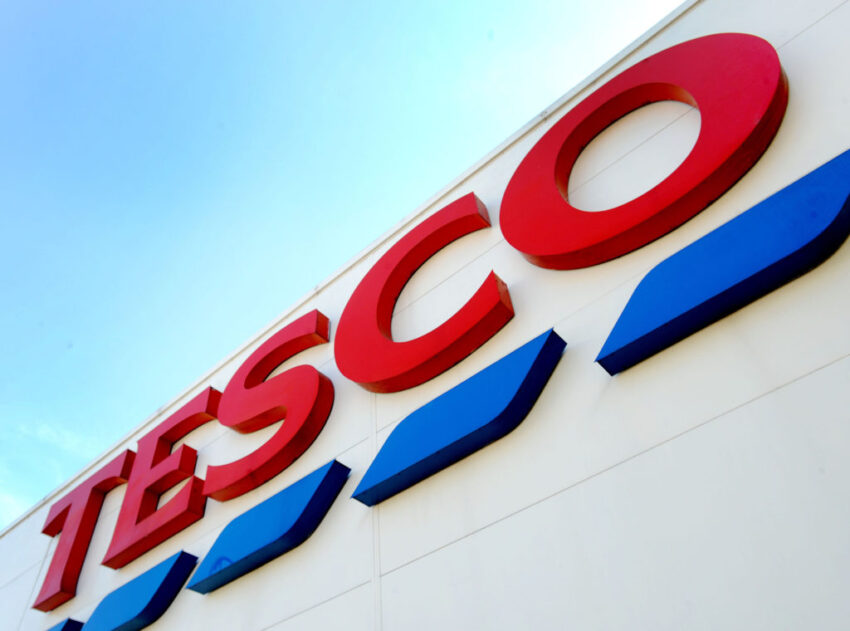
News of Tesco’s accounting scandal sent shockwaves through the City in 2014 and raised serious questions over how a FTSE 100 firm could get away with “cooking the books”.
The grocery giant issued a series of profit warnings in the run up to the September announcement about overstated profits, as the group reeled under the disastrous reign of then-chief executive Philip Clarke.
Mr Clarke, who left the retailer just before the scandal, presided over a tumultuous period for Britain’s biggest retailer, in which market share slumped as Tesco came under pressure from discount rivals Aldi and Lidl.
The bombshell disclosure came on September 22, when the company admitted that issues uncovered in its UK food business meant it was likely to have overstated profits by £250 million.
The disclosures wiped £2 billion off the supermarket’s share price in one day, and the overstatement was later revised up to £326 million.
Tesco ordered an immediate review into the errors, undertaken by Deloitte and law firm Freshfields, but the damage had already been done.
Tesco suspended eight directors and the Serious Fraud Office (SFO) charged three former executives – Carl Rogberg, Chris Bush and John Scouler – with fraud after the black hole was discovered.
To compound matters, the scandal contributed to Tesco’s £6.4 billion loss in 2015, one of the largest in corporate history.
In 2017, Tesco reached an agreement with authorities over the scandal that saw it pay £85 million in compensation payouts to investors and £129 million in fines and costs.
The Deferred Prosecution Agreement (DPA) with the SFO saw the company escape prosecution but book a total hit of £235 million.
The agreement came as Britain’s financial watchdog, the Financial Conduct Authority, concluded that Tesco had committed market abuse.
Although Mr Clarke was spared charges linked to the scandal, Mr Rogberg, Mr Bush and Mr Scouler – the former finance chief, managing director and food commercial head – faced a lengthy court case that eventually began in 2017.
They stood accused of being involved in a “white-collar crime” plot and were charged with fraud by abuse of position and false accounting.
After the initial trial collapsed, a retrial date was set for October this year.
The jury was told the case was a retrial and that Rogberg was charged with identical offences but was not currently well enough to stand trial.
A decision will be made in due course about what action should be taken in relation to Rogberg following the acquittals of Mr Scouler and Mr Bush.
All three maintained their innocence.

Dave Lewis, Mr Clarke’s successor as Tesco chief executive, has attempted to move the group on from the scandal.
He has said the firm is doing everything possible to “restore trust” after seeing the brand suffer.
He said last year: “What happened was a huge source of regret to all of us at Tesco, but we are a different business now.
“The decisions over the last years are evident to all and the job now is to keep this momentum.
“I am pleased with how our colleagues have responded and that has allowed us to rebuild the business since 2014.
“The brand was affected by the announcement back in 2014, that is clear.
“I think everyone will recognise that there is nothing here to be proud of, but I am proud that we faced into it.
“The situation was real and I hope people will respect Tesco for facing a difficult situation and dealing with it in the manner in which it has.”
Mr Lewis appeared in court in October, where he told of his “genuine shock” on learning of the company’s overstated profits.
Who are the acquitted men?
John Scouler and Christopher Bush have now been found not guilty of the charges against them.

Managing director at the time of the scandal, Chris Bush was a Tesco veteran with a 30-year association with the retailer.
He was appointed managing director in January 2013, about a year and a half before the supermarket admitted that it had over-estimated profits by around £250 million.

John Scouler
Tesco’s former food commercial head, John Scouler joined the grocer in 2002, having previously spent eight years with Kraft.
Since leaving in December 2014, the year of the scandal, he has become managing director of consumer business at TalkTalk.

Business Matters

- Harvard Business School →
- Faculty & Research →
- September 2019 (Revised December 2023)
- HBS Case Collection
Accounting Fraud at Tesco Stores (A)
- Format: Print
- | Language: English
- | Pages: 22
About The Authors
Jonas Heese
Suraj Srinivasan
Related work.
- September 2019
- Faculty Research
Accounting Fraud at Tesco Stores (B)
Accounting fraud at tesco stores (c).
- September 2019 (Revised February 2024)
Accounting Fraud at Tesco Stores (A), (B), & (C)
- Accounting Fraud at Tesco Stores (B) By: Jonas Heese, Suraj Srinivasan and Julia Kelley
- Accounting Fraud at Tesco Stores (C) By: Jonas Heese, Suraj Srinivasan and Julia Kelley
- Accounting Fraud at Tesco Stores (A), (B), & (C) By: Jonas Heese and Suraj Srinivasan
- Accounting Fraud at Tesco Stores (A) By: Jonas Heese, Suraj Srinivasan and Julia Kelley
- Share full article
Advertisement
Supported by
Tesco Accounting Scandal Draws Scrutiny of Serious Fraud Office in Britain
By Jenny Anderson
- Oct. 29, 2014
LONDON — The Serious Fraud Office in Britain has started a criminal investigation into accounting irregularities at Tesco, it said Wednesday, adding to the woes of the country’s largest retailer.
Tesco was already under investigation by the Financial Conduct Authority, Britain’s top financial watchdog, for overstating its first-half profits by £263 million, or about $424 million. That investigation has been dropped as the Serious Fraud Office has taken up the case, the Financial Conduct Authority confirmed.
Tesco officials declined to comment.
Last week, Tesco unveiled its first-half results , and said the overstatement was both slightly larger than it had anticipated and had extended back further than previously thought. Of the £263 million shortfall, £118 million related to the first half of 2014, and £145 million was linked to the past two years.
The investigation has caused extensive turmoil in the company, whose stores are ubiquitous in Britain. Eight executives have been asked to step aside, including the chief of the British business and the commercial director.
Richard Broadbent, Tesco’s chairman and a veteran chairman of several banking and civil service organizations, said he would step down when his replacement was found.
We are having trouble retrieving the article content.
Please enable JavaScript in your browser settings.
Thank you for your patience while we verify access. If you are in Reader mode please exit and log into your Times account, or subscribe for all of The Times.
Thank you for your patience while we verify access.
Already a subscriber? Log in .
Want all of The Times? Subscribe .
How did the Tesco accounting scandal unfold and who are the trio in court?
The firm said issues uncovered in its UK food business meant it was likely to have overstated profits by £250 million.
Tesco’s fraud trial has concluded (Nick Ansell/PA)
News of Tesco’s accounting scandal sent shockwaves through the City in 2014 and raised serious questions over how a FTSE 100 firm could get away with “cooking the books”.
The grocery giant issued a series of profit warnings in the run up to the September announcement about overstated profits as the group reeled under the disastrous reign of then-chief executive Philip Clarke.
Join the Belfast Telegraph WhatsApp channel
Stay up to date with some of Northern Ireland's biggest stories
- Northern Ireland
- Republic of Ireland
- Subscriber Exclusives
- Journalists
- Food, Drink and Hospitality
- UK and World
- Ulster Business
- Motorcycling
- Belfast Giants
- Other Sports
- Health & Wellbeing
- Food & Drink
- House & Home
- Fashion & Beauty
- Entertainment News
- Film and TV
- Music and Gigs
- Theatre and Arts
- Entertainment
- Business Awards
- Grocer Awards
- Game Changer Awards
- Spirit of N. Ireland Awards
- Property Awards
- Newsletters
- Competitions
- Home Delivery
- ePaper edition
- Editorial Code of Practice
- nijobfinder
- Death Notices
- Ad Features
- Belfast Telegraph Pension Scheme
- UK Tax Strategy
- Terms & Conditions
- Privacy Statement
- Cookie Policy
- Group Websites
- Advertise with Us
- Contributor T&C
- Ipso Regulated
Tesco to settle final shareholder claims over 2014 accounting scandal
Norway's sovereign wealth fund is said to be party to the final major settlement agreed between Tesco and shareholders over its 2014 financial reporting scandal, Sky News learns.

City editor @MarkKleinmanSky
Monday 4 October 2021 20:09, UK

Tesco is close to settling the final meaningful legal action from shareholders over the 2014 accounting crisis that brought Britain's biggest retailer to the brink of financial disaster.
Sky News has learnt that the supermarket giant could announce alongside its half-year results on Wednesday that it has reached agreement with a group of institutional investors over a substantial payout.
Industry sources said they understood that the most prominent party to the settlement would be Norges Bank, the Norwegian sovereign wealth fund.

Tesco is said to be likely to pay more than £100m to the group of shareholders, adding to a series of earlier settlements which are thought to have cost in aggregate several hundred million pounds.
The litigation law firm Stewarts Law was reported in 2016 to be leading class action claims against Tesco involving as many as 60 of its investors.
The latest sum to be paid out to investors are on top of a £129m penalty that Tesco incurred in 2017 as part of a plea deal with the Serious Fraud Office (SFO) known as a deferred prosecution agreement.
The DPA's three-year term expired last year.
More from Business

Elon Musk says California gender ID law 'final straw' as he moves HQs to Texas

UK economy to grow faster than expected but short of Labour pledge, IMF says

Money blog: UK could take a giant leap towards an interest rate cut this week
Tesco, which declined to comment on Monday night, has been revived in recent years under the leadership of Dave Lewis, who stepped down as the company's chief executive last year.
His successor, Ken Murphy, is expected to outline further details of his vision for Tesco alongside the interim results.
Please use Chrome browser for a more accessible video player

On Monday, Tesco shares rose amid vague speculation that it could be a target for a private equity bid following the £7bn takeover of rival Wm Morrison, which recommended a final offer from Clayton Dubilier & Rice at the weekend.
The Sunday Times reported that Mr Murphy was likely to announce a substantial share buyback this week.

Product details

- News and events
FRC announces closure of Tesco investigation
News types: Investigations
Published: 8 June 2020
The Financial Reporting Council (FRC) today announces the closure of its investigation into accountants working within Tesco relating to Tesco PLC’s (Tesco) overstatement of profit of approximately £250m as announced to the market in September 2014. The investigation commenced in December 2014 with the following scope: “The conduct of Members and a Member Firm in relation to the preparation, approval and audit of the financial statements of Tesco plc for the financial years ended 25 February 2012, 23 February 2013 and 22 February 2014 and the preparation, approval and review of financial information relating to the 26 weeks ended 23 August 2014 leading to the publication of the company’s interim results on 23 October 2014.” The FRC previously closed the investigation into Tesco’s former Chief Financial Officer in August 2016 and its former auditors in June 2017 . During the course of the wider investigation, a number of accountant employees within Tesco were added as subjects. The investigation into these individuals was subsequently paused pending the Serious Fraud Office’s (SFO) trial of three (non-accountant) senior Tesco employees on charges relating to the overstatement. Following the conclusion of the SFO proceedings, and consideration of relevant material and information subsequently obtained from the SFO, Executive Counsel has decided to discontinue the matters in relation to each of the remaining subjects. Accordingly, the matter has been closed without service of a Formal Complaint. Notes to editors:
- The FRC’s purpose is to serve the public interest by setting high standards of corporate governance, reporting and audit and by holding to account those responsible for delivering them. The FRC sets the UK Corporate Governance and Stewardship Codes and UK standards for accounting and actuarial work; monitors and takes action to promote the quality of corporate reporting; and operates independent enforcement arrangements for accountants and actuaries. As the competent authority for audit in the UK the FRC sets auditing and ethical standards and monitors and enforces audit quality.
- Past FRC Enforcement Outcomes can be found here.
- The FRC is the independent, investigative and disciplinary body for accountants and actuaries in the UK dealing with cases which raise important issues affecting the public interest. In brief, the stages of the disciplinary process under the Accountancy Scheme are:
- Decision to investigate
- Investigation
- Decision whether to bring enforcement proceedings against Member Firm or Member and, if so decided, referral to Disciplinary Tribunal
- Tribunal hearing
- Determination and imposition of sanction and/or costs orders
Under the Accountancy Scheme the FRC can start a disciplinary investigation in one of two ways: (i) the professional bodies can refer cases to the FRC; and (ii) the FRC may decide of its own accord to investigate a matter. The Conduct Committee will consider each case identified or referred to it and decide whether or not the criteria for an investigation are met. The criteria are specified in paragraph 5(1) of the Accountancy Scheme. A Member or Member Firm shall be liable to investigation under this Scheme only where, in the opinion of the Conduct Committee the matter raises or appears to raise important issues affecting the public interest in the United Kingdom and there are reasonable grounds to suspect that there may have been Misconduct or it appears that the Member or Member Firm has failed to comply with any of his or its obligations under paragraphs 14(1) or 14(2) of the Scheme. Investigations are conducted by Executive Counsel and the Enforcement division.
- All Press enquiries should be directed to:
- Peter Timberlake, Senior Manager, Press & Digital, on telephone: 020 7492 2397/ 07718 086898, or email: [email protected] .
- William Boyack, Communications Manager, on telephone: 020 7492 2307/ 07480 210166 or email: [email protected] .
- Rita Carolan, Communications Manager, on telephone: 020 7492 2395 or email: r, [email protected] .
- If you no longer wish to receive press releases from the FRC please email [email protected] .
Explore the topics
- Investigations
Is this page useful?
- Yes this page is useful
- No this page is not useful


Tesco hands out £193m to settle 2014 accounting scandal
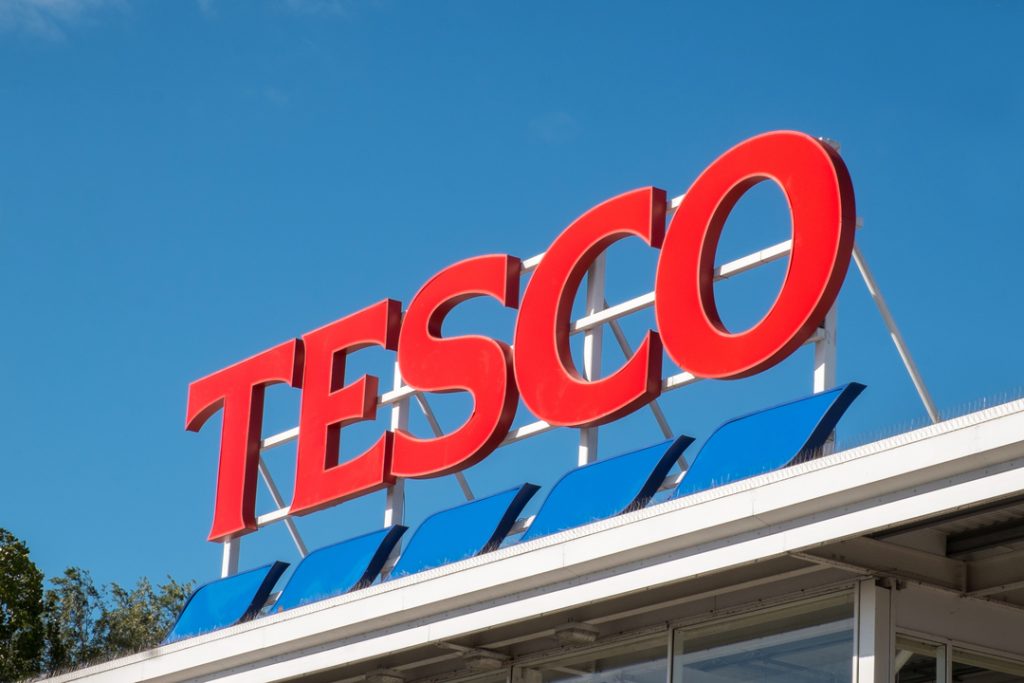
Tesco has handed out £193 million to settle an accounting scandal from 2014, a larger number than it received from the UK’s fraud watchdog.
The Big 4 grocer said it had settled claims from investors with two law firms that had brought legal proceedings against it last September.
The investors include Allianz, Russell Investments and the Church of England pension fund, which sued Tesco over a scandal that wiped off £2 billion from its valuation.
Tesco had incorrectly booked supplier income by £250 million, although the error reportedly grew to £326 million.
As a result, shareholders had been seeking compensation for the share price fall, claiming that their losses resulted from Tesco’s inaccurate reporting.
The Serious Fraud Office had fined the supermarket giant £129 million, while three Tesco executives who were prosecuted by the watchdog were eventually acquitted in 2019.
Click here to sign up to Retail Gazette’s free daily email newsletter
RELATED STORIES

- Sustainability
Asda axes in-store refillable trials due to ‘challenging’ economics

Iceland to partner with Mumsnet on new children’s range
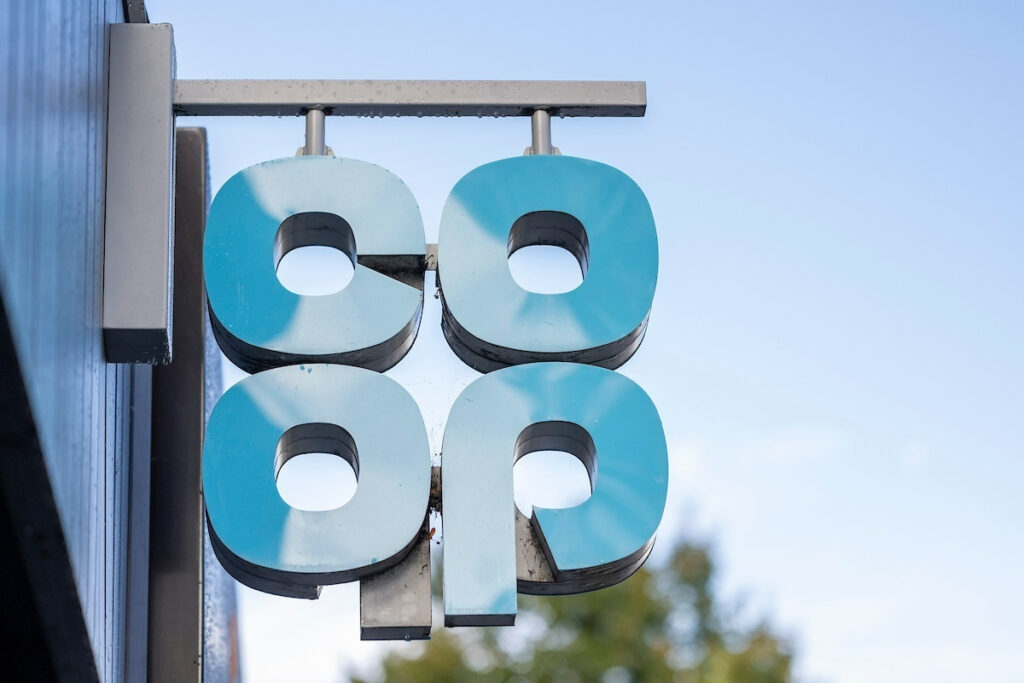
Co-op pulls in immediate fourfold sales hike from retail media
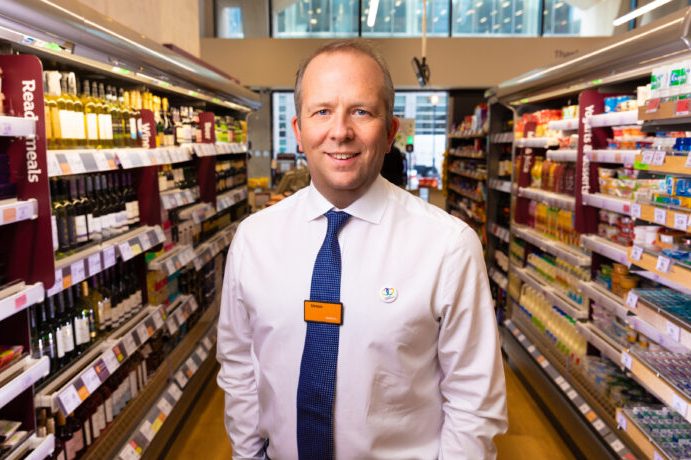
- Feature Articles
4 things Sainsbury’s CEO Simon Roberts wants from the next government

Asda returned to profit in 2023 despite market share losses

- Department Stores
- Home & DIY
10 retailers revamping their store estates

Iceland boss Richard Walker reveals strained interactions with Rishi Sunak

Ocado axed almost 1,000 jobs last year

Iceland ‘Frozen Out’ manifesto reveals consumers do not feel represented by politicians

How Uber Eats is revamping the grocery shopping experience

Data: Who are retail’s highest paid bosses?

Uber Eats couriers to pick, pack and pay for customer orders in supermarkets
Data: asda market share to fall as aldi closes the gap.

Morrisons strikes called off as workers win pension dispute

Morrisons chief customer officer exits after just 3 months

Asda outsources staff to Indian firm amid cost-cutting efforts

Tesco grows market share and sales in first quarter

One in three Asda staff attacked at work, GMB survey reveals
Asda’s next ceo could receive £10m pay package.

Amazon expands grocery delivery to all customers and launches member prices

SUBSCRIBE TO OUR DAILY NEWSLETTER
- Enter your email address *
- Name This field is for validation purposes and should be left unchanged.
Latest Feature
As carpetright puts administrators on standby, what went wrong.

Carpetright put administrators on standby last week as it rushes to secure new investment and

How did the Tesco accounting scandal unfold and who were the cleared trio?
The firm said issues uncovered in its UK food business meant it was likely to have overstated profits by £250 million.

News of Tesco’s accounting scandal sent shockwaves through the City in 2014 and raised serious questions over how a FTSE 100 firm could get away with “cooking the books”.
The grocery giant issued a series of profit warnings in the run up to the September announcement about overstated profits as the group reeled under the disastrous reign of then-chief executive Philip Clarke.
Mr Clarke, who left the retailer just before the scandal, presided over a tumultuous period for Britain’s biggest retailer, in which market share slumped as Tesco came under pressure from discount rivals Aldi and Lidl.
The bombshell disclosure came on September 22, when the company admitted that issues uncovered in its UK food business meant it was likely to have overstated profits by £250 million.
The revelations wiped £2 billion off the supermarket’s share price in one day, and the overstatement was later revised up to £326 million.
Tesco ordered an immediate review into the errors, undertaken by Deloitte and law firm Freshfields, but the damage had already been done.
Tesco suspended eight directors and the Serious Fraud Office (SFO) charged three former executives – Carl Rogberg, Chris Bush and John Scouler – with fraud after the black hole was discovered.
To compound matters, the scandal contributed to Tesco’s £6.4 billion loss in 2015, one of the largest in corporate history.
In 2017, Tesco reached an agreement with authorities over the scandal that saw it pay £85 million in compensation payouts to investors and £129 million in fines and costs.
The Deferred Prosecution Agreement (DPA) with the SFO saw the company escape prosecution but book a total hit of £235 million.
The agreement came as Britain’s financial watchdog, the Financial Conduct Authority, concluded that Tesco had committed market abuse.
Although Mr Clarke was spared charges linked to the scandal, Mr Rogberg, Mr Bush and Mr Scouler – the former finance chief, managing director and food commercial head – faced a lengthy court case that eventually began in 2017.
The trio stood accused of being involved in a “white-collar crime” plot and were charged with fraud by abuse of position and false accounting.
The prosecution claimed that Tesco and the stock market’s credibility had been “undermined” and alleged that they had “cooked the books”.
All three maintained their innocence and have all been cleared.
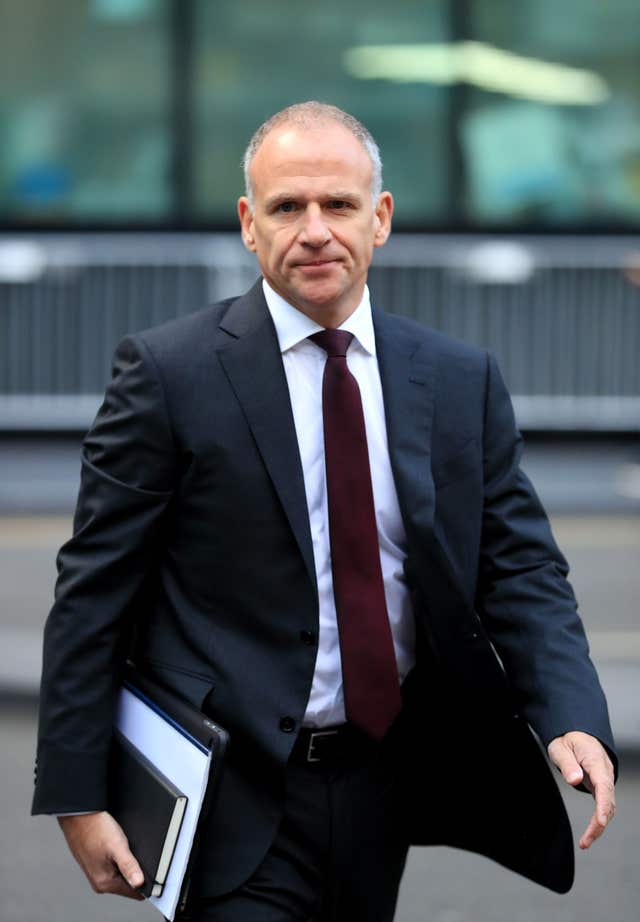
He has said the firm is doing everything possible to “restore trust” after seeing the brand suffer.
He said previously: “What happened was a huge source of regret to all of us at Tesco, but we are a different business now.
“The decisions over the last years are evident to all and the job now is to keep this momentum.
“I am pleased with how our colleagues have responded and that has allowed us to rebuild the business since 2014.
“The brand was affected by the announcement back in 2014, that is clear.
“I think everyone will recognise that there is nothing here to be proud of, but I am proud that we faced into it.
“The situation was real and I hope people will respect Tesco for facing a difficult situation and dealing with it in the manner in which it has.”
Who are the cleared men?
Carl Rogberg, Christopher Bush and John Scouler were charged with one count of fraud by abuse of position and one count of false accounting.
The trio worked under former chief executive Philip Clarke, who will not face any charges linked to the scandal.

Tesco’s former finance director joined the supermarket in 2007 and held down numerous roles including at its Thai unit.
A graduate of the Stockholm School of Economics, he was also finance director at Kraft Foods between 1996 and 2000.
During the trial, Mr Rogberg’s lawyer denied that he had bullied colleagues, as alleged by the prosecution.
He also claimed that Mr Rogberg was “outside the circle of knowledge” of a report prepared in the run-up to the scandal coming to light.
His trial was abandoned last year after he suffered a heart attack and he was too ill to face a retrial.
The 51-year-old lives in Chislehampton, Oxfordshire.
Managing director at the time of the scandal, Mr Bush was a Tesco veteran with a 30-year association with the retailer.
He was appointed managing director in January 2013, around a year-and-a-half before the supermarket admitted that it had over-estimated profits by around £250 million.
Mr Bush was alleged to have failed to correct inaccurately-recorded income figures which were published to auditors, other employees and the wider market.
The 52-year-old, who opted not to give evidence at his trial, lives in High Wycombe.
John Scouler
Tesco’s former food commercial head, 49, joined the grocer in 2002.
Since leaving in December 2014, the year of the scandal, he has become commercial director at TalkTalk.
He did not give evidence at his trial and the jury instead heard from a number of character witnesses.
During the trial, Mr Scouler’s lawyer insisted he did not commit fraud but instead helped to uncover accounting irregularities.
He claimed that Mr Scouler told Amit Soni, the whistleblower who exposed the scandal, to investigate accountancy problems.
He lives in St Albans, Hertfordshire.

A joyous, sunny welcome for the royal couple News | 8 hours ago
King samples a glass of ‘Charles’ ale on trip to Guernsey UK News | 14 hours ago
- Skip to Content
- Skip to Main Navigation
- Skip to Footer
Can Tesco finally move on from its accounting scandal?
The supermarket has inked a deal with the serious fraud office two and a half years after its dirty laundry came to light..
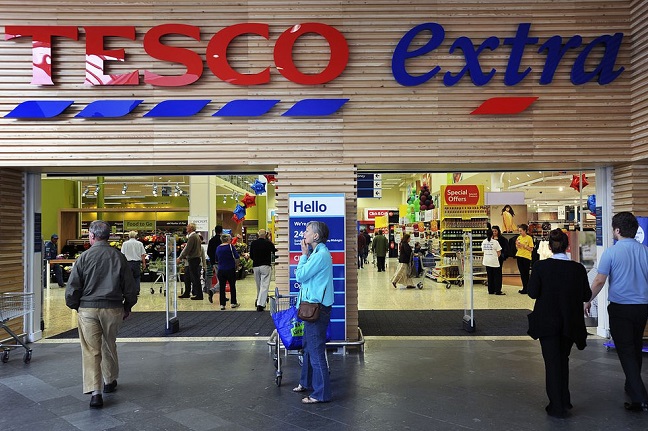
It’s been an extraordinarily tough few years for Tesco. Back in 2010 it was at the top of its game, growing fast and leaving the rest of Britain’s food retailers in its wake. But fierce competition, a series of over-ambitious acquisitions and, of course, its devastating accounting scandal knocked one of Britain’s most successful business off its perch. It’s still the largest retailer in the UK but Tesco’s reputation took a massive knock, arguably even bigger than the one to its finances.
Today its CEO Dave Lewis - brought in from Unilever expressly to clean up the mess - will be hoping to consign all of that to the past. Two and a half years after the scandal hit the front pages Tesco has signed a deal with the Serious Fraud Office that means its subsidiary Tesco Stores Limited won’t be prosecuted, in return for paying a £129m fine. It has also agreed with the Financial Conduct Authority to pay around £85m in compensation to investors that bought shares in the two-ish months after it overstated its profits in 2014.
‘Over the last two and a half years, we have fully cooperated with this investigation into historic accounting practices, while at the same time fundamentally transforming our business,’ Lewis said in a statement. ‘We sincerely regret the issues which occurred in 2014 and we are committed to doing everything we can to continue to restore trust in our business and brand.’
The deals don't affect the pending cases against former Tesco execs John Scouler, Christopher Bush and Carl Rogberg (who deny wrongdoing) and the supermarket is still the subject of two private lawsuits on behalf of investors. But today nonetheless brings to a close a difficult chapter in the company’s history.
It’s not back to business as usual though. In the time since the scandal Tesco’s market share has gone into reverse, eaten away by the fast-growing German discount supermarket chains Aldi and Lidl, which now sell more than 10% of the UK’s groceries. Lewis also faces disquiet from some shareholders over the price of Tesco’s acquisition of Booker Group.
Tesco posted a profit of £162m last year, minute by its standards but a damn sight better than the previous year’s £6.4bn loss. Sales figures since then have been encouraging, but with its bottom line under pressure from the rising minimum wage and higher food prices post-Brexit, the supermarket chain faces a big challenge in returning to the bumper times of yore.
Timeline: How Tesco’s fortunes went south
2011: Terry Leahy jumps ship . It’s a common trait of effective leaders that they know when to get out (see Tony Blair’s resignation just a year before the financial crisis kicked off). Terry Leahy, who was credited with turning Tesco into a globally significant behemoth in his 14 years as CEO, left the supermarket in 2011, the year before its profits reached their zenith.
June 2014: Sales plummet . Leahy’s successor Philip Clarke will be remembered less fondly. Clarke continued to diversify the company, launching a tablet computer called Hudl and buying the coffee chain Harris+Hoole, Giraffe restaurants and Euphorium Bakery in the hope of enticing more customers into the stores. They didn’t salvage Tesco’s fortunes, and in June 2014 it reported a 3.8% drop in like-for-like sales, the biggest decline in decades. Clarke was asked to leave the following month.
September 2014: A new broom. If Tesco’s shareholders thought its new CEO Dave Lewis would hail the dawn of a new era they were right, but not in the way they might have hoped. Three weeks after joining Tesco from Unilever, Lewis was forced to announce the company had overstated its profits by £250m. Its shares plummeted more than 10% to an 11-year low.
October 2014: The long arm of the law. The Financial Conduct Authority and Serious Fraud Office announced separate investigations into the company’s conduct.
January 2015: Lewis’s plan of action. ‘Drastic’ Dave revealed his masterplan for turning things around. He closed the company’s HQ at Cheshunt and 43 unprofitable stores, and cancelled plans for 49 new stores. The grocer also sold off Tesco Broadband and its streaming service Blinkbox to TalkTalk.
April 2015: Monumental loss. Massive write downs on the value of its property led Tesco to post an annual loss of £6.4bn, the biggest in its history and one of the biggest ever in the UK. Lewis was said to be ‘kitchen sinking’ – getting the worst of all the bad news out in one go.
October 2015: Buttering up suppliers. Tesco has long had a reputation as a difficult company for suppliers to do business with ( more on that in this terrifying mea culpa ) and its financial relationship with them came under greater scrutiny after the accounting scandal. In October Lewis pledged to restore that relationship, speeding up payments to small suppliers and simplifying its commercial revenue streams.
April 2016: A return to profit. The grocer bounced back from its loss in 2015 to post a £162m profit in the year to February but that didn’t stop its shares dipping after Lewis warned investors of a ‘challenging, deflationary and uncertain market’.
June 2016: More disposals. Lewis has been keen to strip Tesco of its bells and whistles and refocus on flogging food. After selling off its South Korean Homeplus business in 2015, Tesco disposed of another four businesses last June – Harris+Hool, Giraffe, Euphorium and Dobbies Garden Centre.
January 2017: Proposed Booker bid. Lewis showed there’s still fire in the Tesco belly with plans to acquire Booker, the food wholesaler whose assets include the Premier, Budgens and Londis convenience store brands. Tesco said the merger will ‘delight customers’ but some shareholders have expressed scepticism about it.
March 2017: Drawing a line . After two and a half years with a criminal investigation over its head, Tesco agreed to pay a £129m fine in a Delayed Prosecution Agreement with the SFO, and to pay £85m in compensation to investors.
Image source: Tesco
Interim Talent Development Manager
Bristol, England
£55000 - £65000 per annum + £7k Car Allowance + Great benefits + Scope
Henlee Resourcing
Reporting to the Head of HR, the scope will be to look at the company's current Talent offering, then build, manage, and maintain a modernised function, focused on attracting, developing, and retaining the best talent across their UK business.
Apply for this job
Procurement Specialist
GBP55000 - GBP65000 per annum +
Bramwith Consulting
Procurement Consultant Role- Leading Top 100- Forbes Procurement and Supply Chain Consultancy Specialist- £65K+ Exciting Benefits Prestigious Central London Office Location.
Global Category Manager - Professional Services
GBP65000 - GBP75000 per annum +
Professional Services Senior Category manager - Global Consultancy Major - Prestigious, Blue-Chip Brand - Central London HQ - £60-75k + Generous Packa
Finance Manager - 1 Year FTC (Maternity Cover) 0.6FTE
Homeworking
£50,000 per annum
Society for Applied Microbiology
Finance Manager - 1 Year FTC (Maternity Cover) 0.6FTE This is an exciting opportunity for a finance professional to lead in the development of the ...
Procurement Category Manager - Prof Services
GBP70000 - GBP80000 per annum +
Senior Procurement Category Manager - Professional Services (FINANCE) - Big4 Advisory Major - £70-80k + Excellent Benefit - London/WFH Renowned for th
Professional Services Category Manager
GBP75000 - GBP90000 per annum +
Global Category Manager- Professional Services - FTSE100 Major - London - £90k + PackageOver the last 5 years, this prestigious consultancy major have
Global Procurement Category Manager - Logistics
GBP75000 - GBP85000 per annum +
Procurement Category Manager - Warehousing & Transport Logistics - Global Consultancy Major - £80k + Car & Bonus + Excellent Benefits Package - REMOTE
Head of Procurement
Devizes, Wiltshire
Up to £65,000 plus benefits including a bonus
Cross Manufacturing Co (1938) Ltd
The Role: Responsibility and accountability for the purchase of goods, materials and services to ensure that the company’s operational needs are me...
New Business Director - Retail Experience Agency - London
£60000.00 - £80000.00 per annum + plus bonus and benefits
DNA Recruit
New Business Director - Retail Experience Agency - London Salary up to £80K DOE
Account Director - Activation Agency - London
£65000.00 - £75000.00 per annum + plus bonus and benefits
Account Director - Brand Partnerships and Activation Agency - London - £75K
Interim HR Talent Partner / Talent Management
London, England
£275.00 - £400.00 per day
Interim HR Talent Partner / HR Business Partner (Talent focus) -London Hybrid -Immediate start - Inside scope Support design and implementation of the Talent Management related modules on Success Factors. £300-375 per day
Procurement Business Partner - Indirects & Cost Optimisation
GBP65000 - GBP75000 per annum + + Package
This award winning Media Organisation are seeking an up-and-coming indirect procurement manager to join their specialist procurement function, centered around cost saving projects within procurement and the wider business.
IT Procurement Manager - Award-winning function
GBP50000 - GBP60000 per annum + Flexible working + package
Indirect Procurement Specialist - Award-Winning FMCG Procurement Function - 50k - 60k + package with flexible working
Digital Associate Director
Market related
Reuben Sinclair
Job Title: Digital Associate Director - Digital Health - Leading PR & Comms Consultancy Location: City of London/hybrid Working Salary: Compet
Associate Director Healthcare PR
£75000 - £85000 per annum
Media Contacts
A global PR consultancy needs an additional associate director for its thriving London healthcare office. You will be joining a team of experts at driving...
Project Procurement Manager - Television Projects
GBP60000 - GBP65000 per annum + + Benefits
Leading multimedia organisation seek an ambitious and energetic procurement candidate to join their highly regarded team in a unique and exciting position.
Procurement Manager - Indirects - Global Media Firm
GBP65000 - GBP75000 per annum + + Benefits
This household name is seeking a bright & commercially aware indirect procurement candidate to join their growing function.
Indirect Procurement Director / £110k + Package
GBP90000 - GBP110000 per annum + Benefits inc. Bonus
Indirect Procurement Director / Industry-Leading Boutique Consultancy / Best-in-Class / London / Flexible Working / £90,000 - £110,000 + Package
Indirect Senior Sourcing Specialist / Industry-Leading Law Firm
GBP60000 - GBP70000 per annum + Bonus
Indirect Senior Sourcing Specialist / Global Industry-Leading Law Firm / Rapid Career Progression / Flexible Working / London / £60,000 - £70,000 + Benefits inc. Bonus
IT Procurement Manager - Sustainable Technology Firm
GBP80000 - GBP85000 per annum + bonus + home working
IT Procurement Manager - Sustainable Technology Firm Location: Remote with option to go into office in Central London Salary: £60-70,000 plus package
HR Business Partner
Oxford, England
We are looking for an established HR Business Partner for one of our Oxfordshire clients.
IT Procurement Manager - Global Technology Firm
GBP60000 - GBP70000 per annum + remote working + package
IT Procurement Manager - Global Sustainable Technology Firm - Remote working - 60k - 70k plus package
£70000.00 - £75000.00 per annum
Tomorrow Recruitment
We're working with an award-winning, creative advertising agency who are in the top tier of corporate / b2b comms. They share a highly collaborative,
Director of HR – BMAT
To £80,000 (more may be available for an outstanding candidate)
We are looking to appoint a high-quality HR professional to shape and develop our future provision.
Reward Manager
c.£75,000 basic salary plus car allowance, bonus & benefits
Astrum HR Search & Selection
Reward Manager – 6-12 month FTC/Permanent - Hybrid working Midlands c.£75,000 basic salary plus car allowance, bonus & benefits (FTE) Our Clien...
Database Project Manager & Analyst
£50k per year + pro-rata
Harris Hill
Are you an experienced Database Manager and Analyst who wants to work part-time (22.2 hours a week) for an amazing disability charity?
Employee Relations Specialist
Henley-On-Thames, England
£350.00 - £400.00 per day
Head of Medical Staffing
Hertfordshire, England
£56000 - £65000 per annum
Are you an experienced Head of Medical Staffing specialist looking for a new role?
Recruitment Manager
East London, England
£50000 - £55000 per annum
Are you an experienced recruitment manager looking for a new role ?
Indirect Procurement - Broadcast Media
GBP50000 - GBP60000 per annum + + Package
This global media organisation are currently undergoing an exciting transformative period, and are seeking a Strategic Procurement Management to drive strategy for the procurement on the largest television and entertainment projects in the organisation's
Mass Engagement Director
Hybrid Working
£77,000 to £87,000 depending on experience with excellent benefits
Join us as Mass Engagement Director and bring your expertise to lead a highly successful and motivated team of experts to ever greater success.
Performance, Insights and Innovation Director
£77,000 to £87,000 depending on experience with excellent benefits.
Join us and use your skills in performance, insight and innovation to play a vital role and drive forward major future success.
E-Rostering Manager
£47154 - £52936 per annum
We have a fantastic opportunity for a E-Rostering Manager to join an NHS Foundation Trust based in London. The e-Rostering Manager will provide day-to-day management of the e-Rostering system and processes for the trust.
Global and UK Communications Director
UK / Hybrid Working
UK salary is £77,000 to £87,000 depending on experience with excellent benefits. Salaries and benefi
Join us as Global and UK Communications Director and play a crucial role in championing the importance of Communications in achieving our mission.
Associate Director, Engineering
Cambridge, Cambridgeshire / Hybrid Working
£43,414 - £61,823
This is an opportunity to be the lead fundraiser for the Department of Engineering, one of the most exciting & largest Departments of the University.
People Business Partner - Bedford
Bedfordshire, England
Excellent Package and Benefits
Wright Solutions
This well-known and market leading organisation is recruiting for an HR Business Partner to support their distribution centre in Bedford.
CRM Project Manager
Office-based from one of our national offices (London,Edinburgh,Cardiff,Belfast)& remote flexibility
£57,448 - £62,866 per annum (more may be offered to exceptional candidate) plus excellent benefits
This charity is going through an exciting and vital data and technology transformation into a programme of work (called Project Sage).
3rd Party Outsourcing Procurement Manager
GBP60000 - GBP75000 per annum + + Package
An exciting opportunity has arisen to join a best-in-class procurement function following the advent of an expansive transformation period.
Specialist Procurement Consultant opportunity, Saudi Arabia
GBP60000 - GBP75000 per annum + living allowances
Procurement Lead opportunity - Flagship Mega Project in Saudi Arabia - Renewable Energy & Sustainable Technologies - Saudi Arabia - 25,000-35,000 SAR
Senior Capital Procurement Category Lead / Best-in-Class
GBP70000 - GBP80000 per annum + Bonus
Senior Capital Procurement Category Lead / Best-in-Class Utilities Organisation / Transformational Procurement / Leeds / Flexible Working / £70,000 - £80,000 + Benefits inc. Bonus
Direct Procurement Specialist- Leading Automotive Firm- £40-50K- London Based
Organisational Development Manager
Crawley, England
£45000.00 - £56000.00 per annum
A Organisational Development Manager for the NHS in Crawley
Equality, Diversity & Inclusion Manager
£45000.00 - £55500.00 per annum + benefits
A permanent Equality, Diversity & Inclusion Manager for a NHS organisation in Crawley
Head of Business Development and Marketing
Working from home with the occasional visit to London
£45k to £50k
Aesop is delighted to be recruiting for a Head of Business Development and Marketing professional.
Head of HR, Performance and Communications
West Surrey
Up to £80,500 per annum
Surrey Heath Borough Council
Head of HR, Performance and Communications Salary: Up to £80,500 per annum Grade: SH31 Contract: Permanent Hours: 37 per week Location: West Surrey...
Interim HR Director - Professional services
£800.00 - £900.00 per day
Interim HR Director job - London - Hybrid - 1 day per week in office £800-900 per day inside scope via umbrella company Immediate start
ACCOUNT DIRECTOR / ASSOCIATE | Energy, Renewables, Corporate
London (Central), London (Greater)
up to £70k+++
Carter Ferris
Great, global agency and multi award-winning team, looking for strong Senior Account Director and Associate Director with experience of the energy ...
Interim Indirect Procurement Specialist
EUR600 - EUR700 per day +
This rapidly growing online commerce business is looking for short-term support until the end of the year to help during a peak period of contract negotiations.
Senior Resourcing and Talent Specialist
Swindon, England
£500.00 - £750.00 per day + WFH mainly
Senior Resourcing and Talent Specialist, to £750 per day out of scope, 6 mth interim, mainly WFH. Full/part time. Swindon public sector organisation - supports equality, diversity and inclusion and provides a supportive workplace.
Head of Evaluation and Research
£50520 - £51468 Per Annum £50,520 per year, rising to £51,468 per year after 1 year and successful p
Head of Evaluation and Research We have a rewarding opportunity for a Head of Evaluation and Research to drive change to improve the lives of service users in the exciting new role. Offering flexible working, this is a really great opportunity to
HRBP - North of England and Scotland
Perth, Scotland
£55000 - £65000 per annum + car allow, bonus, bens and 30 days holiday
Reporting to an engaging and developmental People Director, the purpose of the role is to create a sense of belonging, teamwork, vision, community and purpose around the people agenda.
Edinburgh, Scotland
Leeds, England
Executive Director
£65,000 to £80,000
International health charity seeking an Executive Director with inspirational leadership, to build partnerships and deliver our strategic plan.
Head of Commissioned Partnerships
London (hybrid working)
£55000 - £60000 per annum
Mental Health Innovations
Head of Commissioned Partnerships London (hybrid working) About Us We are Mental Health Innovations (MHI), a digital mental health charity that dev...
IT Procurement Manager - Global Law Firm
GBP70000 - GBP75000 per annum +
Role: Senior IT Procurement Manager Type: 9 Month FTC Location: Leeds - x2 days a week Firm: Global Law Firm Day Rate: £70,000 - £75,000 Contact
HR Data and Systems Manager
£47000.00 - £52000.00 per annum + full range of benefits
HR Data and Systems Manager, up to £52k pa + benefits, permanent, great organisation, hybrid, Bristol office. Large leading Bristol organisation which offers knows their people are their strength.
Procurement Category Manager - Technology
Highly regarded Technology organisation seeks an experience technology procurement candidate to join a newly created role in their expanding procurement function.
National Lead of Operational Learning & Development
SCP 65-69 (£73,137 - £79,402)
Oasis Community Learning
We are offering a unique and exciting opportunity to become an influential leader within one of the largest trusts in the UK.
Director of Human Resources
Competitive
University of Sussex
Having challenged convention since its foundation in 1961, the University of Sussex was created to be life-changing for its students, to deliver pr...
Head of Human Resources
London (Greater)
£85000 - 95000 per year +
UK Debt Management Office
About the organisation The UK Debt Management Office (“DMO”) is an Executive Agency of Her Majesty's Treasury (“HMT”) responsible for financing the...
Head of Value Propositions and Innovation
90,000-95,000
Michael Page (Client Branded)
This is an exciting newly created role Coach and lead a team of 12 people About Our Client For over 140 years City & Guilds have worked with peo...
Head of Brand Strategy (corporate)
up to £100k
Corporate Communications Recruitment
An award winning global integrated agency with a strong corporate branding offer are looking to hire a head of brand strategy. Great opportunity!
CHIEF EXECUTIVE OFFICER
Heaton Moor, Stockport
£62,000 per annum
Supportability
The Chief Executive role for the Charity is to work on behalf of the Board of Trustees to develop and deliver the business plan and business strate...
Head of Governance and Executive Office
Office-based in London, N4 with flexibility to work remotely, minimum 2 days in the office per month
£67,678 - £72,753 FTE (Actual: £40,606.80 - £43,651.80 per annum) plus excellent benefits
Our Head of Governance and Executive Office leads on ensuring that we maintain the highest standards of governance, demonstrating practice across...
Development Director
Cambridge, Cambridgeshire, CB2
£75,000 - £85,000 with flexibility for an outstanding candidate
Our client is looking for an exceptional individual to be their next Development Director following the retirement of the current post-holder.
Senior Procurement Manager / Technology / Global Law-Firm
GBP550 - GBP625 per day +
9 MONTH INTERIM OPPORTUNITY £550-625p/day - Senior Procurement Manager - Technology - Global Law Firm - Leeds & Hybrid working This globally recognise
Opportunity to train with a leading global fundraising consultancy
£51,000 plus performance related bonus of £2,500 in 2024
THINK Consulting Solutions
Motivated by a continual stream of new challenges? Love to problem solve? Committed to helping teams and individuals deliver top quality fundraising?
Chief Executive
St Wilfrid’s Hospice, Eastbourne
£90,000 - £95,000 + pension + benefits
St Wilfrid's Hospice
Chief Executive St Wilfrid’s Hospice, Eastbourne Full-time £90,000 - £95,000 + pension + benefits St Wilfrid’s Hospice is the local hospice for the...
Procurement Consulting Opportunities / Leading Boutique
GBP65000 - GBP80000 per annum +
Procurement Consulting opportunities - Market Leading Procurement Boutique Consultancy - Private Equity Backed - London + Travel - £65-80k + Package
Strategic Procurement Manager - Packaging - Global FMCG
GBP50000 - GBP60000 per annum + + Package + Flexi Working
Strategic Procurement Manager - Packaging - Global and Iconic FMCG brand Location: London/Remote Salary: £50-60k + package
GBP550 - GBP600 per day +
9-Month FTC - Senior Procurement Manager - Technology - Global Law Firm - Leeds & Hybrid working - £550-625p/dayThis globally recognised law firm, ren
Senior Procurement Manager / Indirects / Global Law-Firm
Procurement Manager- Global Leading Law Firm - FTC - 6 Months- Leeds Based- **£500-600/Day Inside IR35**
Senior IT Procurement Manager 9 month FTC
GBP600 - GBP625 per day +
Senior IT Procurement Manager- Global Leading Law Firm - FTC - 9 Months- Leeds Based- **£625/Day Inside IR35**
Assistant Director, HR Business Partnering
£75000 - 100000 per year +
City of London
We are the City of whatever we make it… A career with the City of London Corporation is a career like no other. We are based at the heart of one th...
Assistant Director, Organizational Development & Talent
Client services director.
Remote (UK)
Up to £90k DOE plus benefits
air-recruitment
Are you the senior client services pro this really warm and friendly creative agency need?
Assistant Director, HR Operations
Senior hr business partner.
HR Business Partner London - Hyrbid £70kpa
Brighton, England
£300.00 - £400.00 per day
A 6 month temporary HR BP based in Brighton (hybrid), £300-£400 per day
Marketing Lead
£65000 - £75000 per annum
Major Players
Marketing Lead/Head of Marketing - Tech Marketing Lead/Head of Marketing - The Company My client is an extremely successful start-up within Tech (SaaS
HR Systems and Information Lead
Hybrid working
Imperial College London
We are urgently seeking an experienced HR System and Information Lead that can provide strong leadership to our HR Systems team, during a project p...
Associate Director (Summer School and Executive Education)
£70,000-£83,000
London School of Economics
Play a leading role in delivering a key part of LSE's 2030 vision and strategy Be part of a highly successful and commercially driven team About...
Art Director / Creative - client side / in-house role
£70k - £75k + benefits / flexible working
MODA Consult
This beautiful brand is looking for an Art Director / Creative to work within their in-house team. Outstanding interior design / furniture brand.
Partnership Director
£70k Basic + £30k OTE plus benefits
This is such an exciting role, a Partnership Director working with tech platforms, at a leading digital / commerce agency. Something really different!
HR Manager 14mth FTC
£50000.00 - £55000.00 per annum
HR Manager London - Hybrid 14mth FTC Immediate Start
IT Procurement Manager - Sustainable Technology Firm Location: Remote with option to go into office in Central London Salary: £80-85,000 plus package
Business Director - 2 roles at varying levels
London - Hybrid working, 3 days in the office 2 days at home
£75k - £85k dependent on experience and great benefits
2 fantastic opportunities at this top creative agency at Business Director level. We need someone with strong CRM / customer engagement experience.
Business Director x 2 roles
£85k - £100k dependent on experience and great benefits
2 fantastic opportunities at this top creative agency at Business Director level. Opportunity to work with some of the best in the business.
HR Manager / Senior HR Business Partner
Birmingham, England
£60000.00 - £65000.00 per annum + Excellent Benefits
This is an interesting opportunity to join a smaller but highly successful UK business working as a strategically minded HR Business Partner.
Early Talent Programs Senior Associate
City of London, England
£50000.00 - £60000.00 per annum
A Global Rating Agency in the hub of the Financial Market for Early Talent Programme Lead
International Pensions Senior Manager
£80000.00 - £100000.00 per annum + Bonus, cash allowance, hybrid, flex
The International Pensions tax team advises employers, employees, and trustees of pension plans on tax treatment for distributions from and contributions to International Pension Plans.
Senior Reward Manager - Tax
The role would suit an existing Manager with demonstrated experience in employment tax advisory and compliance work. Employee share plan and global mobility experience would, whilst not essential, be an advantage.
Project Management Lead (Mobilisation)
Blended between office and home (England and Wales)
Salary: £56,214 plus London Allowance of £3,520 if applicable
Citizens Advice
We are looking for an experienced project/programme manager with a demonstrable track record in successfully delivering major change initiatives.
Senior Benefits Manager
£55000.00 - £70000.00 per annum + Bonus, hybrid, negotiable
The purpose of this role is to manage the Global Benefits Operations across all locations.
Benefits & Wellbeing Manager
£50000.00 - £65000.00 per annum + Bonus, hybrid & flexi, negotiable
The firm takes very seriously the physical and mental health of its employees and partners.
HR Director
Slough, England
£105000.00 - £115000.00 per annum + 20% bonus, car allowance
Excellent HR Director opportunity. Up to £115k + bonus + car allowance. Hybrid working.
Senior Procurement Consultant / Best-In-Class
GBP60000 - GBP75000 per annum + Bonus
Senior Indirect Procurement Consultant / FTSE 250 Consultancy Organisation / Rapid Career Progression / Home Based Contract / £60,000 - £75,000 + Benefits inc. Bonus
CAPEX Category Manager - Global Utilities Company
Saudi Arabia
GBP60000 - GBP70000 per annum +
Procurement Category Buyer - CAPEX (Engineering & Construction) - Global Consultancy - Global Waste Management Project - 20-35,000 SAR - Riyadh Saudi
Major Waste Management/Utilities project - Category Manager
Leading Saudi Arabian Utilities company - Major construction project Role: Buyer Salary: 25-35,000 SAR Location: Saudi Arabia This Leading Procuremen
Procurement Senior Manager - Global Blue-Chip
World renowned professional services firmRole: Senior Consultant - Indirect GeneralistLocation: London - WFH / Occasional travelSalary: £60-70k + Pack
Safeguarding Trustee
Flexible location
Save the Children
Are you motivated by our vision of creating a world where every child doesn't just survive, but thrives, and can go on to change the world?
Grade 10 - £63,673 to £69,561 (appointment is normally made at lowest point on scale)
The Alliance for Sustainability Leadership in Education - EAUC - has a unique opportunity to be our CEO. Are you that person?
Deputy Young Transport Workers Officer (London)
Starting at £54,879 – £64,730 (plus a bonus of 1/12th of annual salary)
International Transport Workers Federation (ITF)
The Deputy Young Transport Workers Officer, based in our London office will develop strategies for organising young transport workers, ensuring tha...
Innovative Procurement Manager - Media Production
GBP55000 - GBP65000 per annum + + Package
HRIS Specialist
£50000.00 - £65000.00 per annum + Bonus, negotiable, work abroad
This is a fully autonomous role, where you will have full ownership to design, implement, and bring to life an established but underutilised HRIS system.
Head of Human Resources - Part Time
SW3 6JJ, London (Greater)
£60,000 - £70,000 FTE + Benefits
Job description Job Purpose The Royal Marsden Cancer Charity (RMCC) raises money solely to support The Royal Marsden, a world-leading cancer centre...
Head of People
Wallington, London (Greater)
Cognus Band 6 £39,872.04 (0.6 FTE of £66,454.84)
Cognus Limited
We are looking for a highly motivated and experienced Head of People to lead our HR department, develop our teams and provide strategic direction.
Construction Category Manager
£570 per day (inside IR35)
Langley Search & Interim
The Opportunity:- Our client is currently recruiting for an interim Construction Category Manager to deliver commercial strategy and tendering / ...
Senior Indirect Procurement Consultant / FTSE 250
Hr business partner - hybrid working.
Salisbury, England
£47000 - £53000 per hour
Are you an experienced HR Business Partner with Public Sector experience who can commute to Salisbury 2-3 days a week? Are you available to start a new interim role at relative short notice? If so please apply today.

Global Mobility Senior Manager
£70000.00 - £95000.00 per annum + Bonus, cash allowance, negotiable
We are looking for a Senior Manager to join our Financial Services Global Mobility Services (GMS) Technology team in London. Our Global Mobility Service (GMS) practice is a diverse and fast-growing area of our Tax business.
Junior Business Partner
Your new company This company is one of the world's leading technology communication companies. They have a large international presence, leveraging 12,000 employees in the UK alone.
Head of External Affairs: Fair By Design
£47,013-£56,415 pa + up to 10% contributory pension
Barrow Cadbury Trust
Seeking a talented individual with an outstanding track record of successfully delivering impactful communications and public affairs strategies.
Associate Director B2B technology PR
£65000 - £80000 per annum
Are you an Associate Director ready to change agencies? Looking to work with industry defining clients? Are you an individual with the ambition to become...
Tewkesbury, England
£45000.00 - £55000.00 per annum + full range of benefits
HR Manager, to £55k pa + bens, hybrid working, Tewkesbury based organisation, HR generalist post, perm. Proud to be the exclusive recruitment partner for a superb leading,well established and growing retail organisation.
GBP50000 - GBP65000 per annum +
Direct Procurement Specialist- Leading Automotive Firm- £40-50K+ Package- London Based Procurement Consultant Role- Leading Top 100- Forbes Procurement and Supply Chain Consultancy Specialist- £65K+ Exciting Benefits Prestigious Central Lo
MD for an ambitious PR agency
£120,000 - £150,000
f1 Recruitment
An incredible opportunity for an MD to join this award winning integrated agency. Reporting into the CEO, this is an exciting opportunity to lead t...
HR & OD Business Partner
£54223 - £60316 per annum
Are you an experienced HR Business Partner looking for a new challenge? With a refreshed HR & OD Strategy and senior leadership team this is a great time to join.
Head of Development
Clerkenwell, London
£45-50k per annum
Art Angel Trust
The role has a strong understanding of the funding landscape in the UK and has successfully fundraised from trusts and foundations and private patrons
Oxfordshire, England
£50000 - £60000 per annum
A newly created Head of HR role within a post-transformation setting.
Procurement Manager - Travel and Events
USD120000 - USD130000 per annum +
Procurement Manager - Travel and Events Procurement - $120,000 - $130,000 - Global Leader in Food and Beverage - RemoteIf you want to hear more about
HRIS Project Manager (iTrent)
£400 - £500 per day
1 My London based healthcare client is looking for an experience HRIS Project Manager (iTrent) to join the team on an interim basis. (Hybrid working)
Director of Communications
Avon & Somerset Police
We support the lives of millions of people across our diverse communities, and have a workforce of over 6,000 inspiring and dedicated staff,
Head of Digital
City of London, London / London
£100000 - £120000 per annum
Head of Digital (B2B Marketing)**NEW ROLE** The CompanyAn international law firm with an exceptionally strong brand platform and a reputation for exce
Interim Head of HR
£70000 - £75000 per annum
We are looking for a Head of HR to join a unique organisation in central London for 12 months.
FM / Construction Procurement Manager - Global FTSE 250
Dublin City Centre
EUR75000 - EUR85000 per annum + bonus + flexi working
FM & Construction Procurement Manager - Global FTSE 250 FMCG - 85,000 EURO + package Location: Berkshire (flexible working available)
Procurement Manager - Production and Special Projects
GBP55000 - GBP60000 per annum + + Package
Procurement Officer - Global Mega City
GBP50000 - GBP60000 per annum +
Procurement Officer - Flagship Mega Project in Saudi Arabia - Raw Materials and Direct Procurement - Riyadh - 15-20,000 SAR per month + benefits - ARA
FM Procurement Manager - Global FTSE 250 FMCG
GBP75000 - GBP80000 per annum + bonus + flexi working
FM Procurement Manager - Global FTSE 250 FMCG - £80,000 + package Location: Berkshire (flexible working available)
Recruitment Partner - Technology / Digital
£45000 - £55000 per annum + bonus, benefits package & hybrid working
We are looking for you to be a great team-player who enjoys working with others to achieve exceptional team results.
Procurement & Supply Chain - Management Consultants
GBP70000 - GBP90000 per annum + bonus + excellent package
Procurement & Supply Chain - Management Consultants - Multiple Opportunities Rapidly Growing Management Consultancy London + Flexibility + Some Travel £70,000 - 90,000 (depending on experience)
Director of Finance and Operations
£77,500 - £85,000
We are looking for a strategic inspiring leader with substantial experience in delivering financial and operational leadership.
Global Hard FM Procurement Manager
GBP70000 - GBP80000 per annum + bonus + excellent package
Global Hard FM Procurement Manager - Global FMCG - London - £70,000 - £80,000 + Package
Senior Facilities (FM) Procurement Manager
GBP75000 - GBP85000 per annum + Package, Rapid Progression
Senior Facilities (FM) Procurement Manager - Global Property Giant - London - £75,000 - £85,000 + Package
Generating over $600 million in annual revenue, this dynamic food and beverage organization are undergoing progressive internal transformation - buil
Head of Innovation and Partnerships (Health)
£50520 - £51468 Per Annum
Head of Innovation and Partnerships (Health) We have an exciting opportunity for a Head of Innovation and Partnerships to drive innovation to support the work in integrated health and care delivery, and progress opportunities to build new partners
Taxation Accountant
Sandy, Bedfordshire (Hybrid)
£42,768.00 - £52,124.00 per annum
This role will become the charity's internal tax expert, providing advice on all taxes that affect the organisation and its entities.
Head of Business Development
£49584 - £50520 Per Annum
We have an exciting opportunity for a Head of Business Development to deliver the charity’s ambitious business development goals.
Finance Manager (maternity cover, 15 months)
E2 9DA, London (Greater)
£50 - £60k depending on experience
ISEAL Alliance
ISEAL is looking for an experienced and motivated 15-month maternity cover for the position of Finance Manager. The role encompasses all responsibi...
Director of Talent & Learning
Essex (Hybrid)
C£90,000 basic salary plus Excellent Benefits
Essex (Hybrid: 2/3 days per week Essex with travel/WFH) Our client is a multi-site, fast paced service organisation with strong values. The busines...
Global Indirect Procurement Specialist
GBP50000 - GBP60000 per annum + Excellent Bonus, Rapid Progression
Global Indirect Procurement Specialist - World-Leading Professional Services Organisation - London + Flex. - £50,000 - £60,000 + Excellent Package
Head of People and Organisational Development
Location: Bridgwater College Academy
Salary: £65,000 - £75,000 per annum
Bridgwater & Taunton College
Bridgwater and Taunton College Trust is seeking to recruit an outstanding colleague to the position of Head of People and Organisational Development.
Head Of Procurement
St Helena Island, South Atlantic
£75k pa (Salary of £60k pa, plus International Supplement)
St Helena Government
Enjoying unique lifestyle opportunities, St Helena Island is a self-governing overseas territory of the United Kingdom.
Contract Manager
£60k pa (Salary of £45k pa, plus International Supplement)
ASSOCIATE DIRECTOR | Corporate Reputation, Brands
£75,000 - £80,000
This global communications agency is seeking a proven corporate and business media strategist, with solid editorial relationships and deep expertis...
Associate Director / Senior Associate Director – Energy & Sustainability
London (Central)
Depending on experience
Premier Resourcing UK
Associate Director / Senior Associate Director – Energy & Sustainability GV5409 Exciting London agency looking to recruit someone with publ...
Director (Financial PR - Tech, Natural Resources, Financial Services )
Up to £150'000 + benefits
Brook Street
Director (Financial PR - Tech, Natural Resources, Financial Services ). Leading Corporate & Financial PR Agency. Competitive Salary.
Procurement Manager - Strategic TV Production
GBP60000 - GBP65000 per annum + + Package
Head of People, Organisational Development and the Workplace
Hybrid Working with Head Office at Euston, London NW1 1BS
Circa £80,000 pa plus excellent benefits
Origin Housing
Origin Housing are now seeking an exceptional individual to join them as their new Head of People, Organisational Development and the Workplace.
Senior Procurement Manager - Indirects - Global Law Firm - Leeds & Hybrid working - £70-75k + package This globally recognised law firm, renowned for
Strategic Sourcing Manager - International TV Production
Senior media relations manager.
Senior Media Relations Manager Seeking a new in-house challenge leading a team to create and deliver media relations strategies for a global profes
Interim Resourcing Advisor
Your new role You will be joining this multinational market leading brand as they prepare to launch an exciting new project across the UK.
Senior Manager - Pay & Reward
Hybrid flexible working with office locations nationally
£55000 - £65000 per annum + generous benefits
My highly respected national Charity client has an exciting opportunity for an experienced Pay and Reward specialist to join their organisation.
Senior HR Advisor
Bournemouth, England
£20.58 - £28.64 per hour
Seeking an experienced HR Advisor / Senior ER Advisor to join a large organisation managing a complex case load of ER 3-6 months +
Programme Manager
£55k per year
Implement key organisational change initiatives which are critical to the achievement of the Charity's strategic aims and objectives.
Director of People & Operations
Hybrid working. Largely home-based, some in-person expected. Some flexibility for hot-desk locations
Are you an ambitious, innovative, and values-led leader who could form a key part of this charity's Senior Leadership Team?
Account Director
£400 - £450 per day
Head of Finance
£52,404 - £62,573
We are looking for a Head of Finance to lead on the development and implementation of financial strategy, financial planning and budgeting
Head of P2P Outsourcing (BPO)
EUR100000.00 - EUR120000.00 per annum +
This international FinTech organization provides technology and consulting services to its clients around the world including the implementation of customized Procure-to-Pay (P2P) and Source-to-Contract (S2C) solutions that digitize and simplify purchasin
Indirect Marketing Procurement Manager / Best-in-Class
Indirect Marketing Procurement Manager / FMCG / Nationally Loved Brand / London / £60,000 - £70,000 + Benefits inc. Bonus
Resourcing and Data Analytics Manager
£65000.00 - £80000.00 per annum
Resourcing and Data Analytics Manager, Leading FTSE 250 Firm, London, Hybrid, Permanent, 65K - 80K
Head of HR/HR Director
Abingdon, England
£75000.00 - £100000.00 per annum
We are looking for a Head of HR/HRD with M&A experience to join our life science client in Oxfordshire.
Category Manager
Senior Procurement Category Manager- Global FMCG London Based- £60-70K + Package
Flagship project - Procurement Buyer - Tech
GBP60000 - GBP80000 per annum +
Procurement Buyer- (IT, Hardware, Software) (Multiple Roles) - Working with a leading Global Procurement Consultancy on a Flagship Project in Saudi
Leading Saudi Arabian Utilities company - Major construction project Role: Buyer Salary: 25-30,000 SAR Location: Riyadh This Leading Procurement & S
Interim Benefits Manager EMEA
£300.00 - £600.00 per day
Interim Benefits Manager EMEA - Financial services - London Hybrid Competitive day rate - inside scope of IR35 Interim Benefits job Interim Benefits Specialist Interim Benefits Consultant
Interim HR Talent Partner / HR Business Partner
Procurement category manager - indirects.
Global Procurement CPS Lead - £multibillion FMCG Major - LONDON / WFH - £70-77k + Car and other package details Global FMCG brand is seeking a bright
Global Procurement Category Manager - Professional Services
Title: Procurement Category Manager - Professional Services and Business IntelligenceCompany: Global FTSE 100 Financial Services FirmLocation: WFH - L
Interim HP BP - Technology
£427.00 - £518.00 per day
Interim HR BP to support a Tech population - 9-12 months + - London Hybrid up to £518 per day inside scope Interim HR Business Partner job Immediate start
Regional HR BP - 12 M FTC
£65000.00 - £70000.00 per annum
Interim Regional HR BP - 12 month FTC - Facilities Management - London - c£65,000 - £70,000 plus car allowance Interim HR BP - 12 month FTC - Facilities Management - London - c£65,000 - £70,000 plus car allowance Interim Human Resources Business Partn
Interim Reward Manager
£400.00 - £500.00 per day
Interim Reward Manager - Global Law Firm - London/Remote - up to £500 per day inside scope Interim Reward Manager - Global Law Firm - London/Remote - up to £500 per day inside scope
Procurement Consultant
GBP60000 - GBP65000 per annum +
Procurement Consultant - Forbes Top 100 Procurement and Supply Chain Consultancy Specialist-£65K+ Exciting Benefits- Prestigious Central London Office Location Procurement Consultant Forbes Top 100 Procurement and Supply Chain Consultancy Speciali
Talent Acquisition Partner - Technology
An international Investment Management Firm
Procurement - Managing Consultant
GBP40000 - GBP60000 per annum + package
Procurement - Managing Consultant - Global FTSE 100 Professional Services Firm - London - £40 - 60k + Excellent Benefits Package
Global Procurement Consultant (multiple roles)
GBP30000 - GBP60000 per annum + package
Global Procurement Consultant (multiple roles) - Management Consultancy - London - £30,000 - £60,000 + Excellent Package + Personalised Career Plan + State of the Art Offices
Global Junior Procurement Consultant
Global Junior Procurement Consultant - GNFR- International FMCG Firm - London - £40,000 - £60,000 - Excellent Package - Fast Track Career Progression
Strategic Sourcing Manager, IT & Technology
EUR60000 - EUR90000 per annum + bonus + benefits
Strategic Sourcing Manager, IT & Technology - Global FTSE 100 FMCG Player - Dublin- £50,000 - €90,000 + Bonus & Benefits
Procurement Category Manager, HR & Professional Services
Procurement Category Manager, HR & Professional Services - Iconic Brand - Dublin with Flexible Working - €90,000 + Benefits
IT Procurement Team Lead
EUR60000 - EUR80000 per annum + package
IT Procurement Team Lead - Global FTSE 100 Conglomerate - Amsterdam - €80,000 + Package
Software Technology Procurement Manager
EUR55000 - EUR90000 per annum + bonus + benefits
Software Technology Procurement Manager - Strategic Growth Initiative - £25bn+ Professional Services Giant - DUBLIN
Reward Manager - Analytics
Bonus, car cash allowance, hybrid
The Reward Manager (Analytics) role requires a professional with a broad and detailed working knowledge of compensation processes with the expertise to implement change using complex reward analytics.
Reward Analyst
Bonus, hybrid, negotiable
The scope of this role is to support the Reward Director in the delivery of group wide annual pay and performance review, share plans across the organisation, the provisions for pension arrangements and the employee benefits offering across the Group.
Procurement Consultant - Forbes Top 100 Procurement and Supply Chain Consultancy Specialist-£65K+ Exciting Benefits- Prestigious Central London Office Location Senior Procurement Consultant Forbes Top 100 Procurement and Supply Chain Consultancy S
Part home/part office (London) based
£90,000 per annum
The UK Committee for UNICEF
This is a great opportunity to join the UK Committee for UNICEF (UNICEF UK) as the Director of Communications.
Non-Executive Directors
£4,800 p.a.
Raven Housing Trust
We’re looking for two people to join our Board...
In House Media Relations Manager Role at Top Law Firm
Exceptional In House Media Relations Manager wanted for top tier global Law Firm! Salary: £70k DOE - our client will flex for the right candidate
Head of Foundation Partnerships
£60,000 per annum
This is a great time to join the UK Committee for UNICEF (UNICEF UK) as we have ambitious plans over the next five years.
Bradford, West Yorkshire
Bradford Council
City of Bradford Metropolitan District Council – Head of Procurement Bradford is an extraordinary city. Vibrant and diverse, it’s a place of opport...
£50000.00 - £60000.00 per annum + full range of benefits
Trainer, to £60k pa, permanent, hybrid with Bristol/Birmingham/Bracknell or Guildford office. Finance sector, leading, long standing and award winning company.
HR Consultant - TMO Change Project
Cheltenham, England
£350.00 - £400.00 per day + WFH/remote working
HR Consultant - Target Operating Model change project, up to £400 per day, remote working, interim asap. FTSE 100 multi-national engineering organisation which has its headquarters in Cheltenham.
Principal Commercial Manager
Canary Wharf, London (Greater)
£51,810 - £59,405 pa
Exciting opportunity for a proven senior commercial professional, with extensive experience of delivering end to end procurement activity.
Senior Procurement Manager - Professional Services
GBP60000 - GBP75000 per annum +
Senior Procurement Manager - Professional Services - Multinational Communications Firm - £80-90K + Bonus - London based (hybrid model working) One of
Procurement Category Manager - Professional Services & HR
GBP60000 - GBP75000 per annum + Benefits
Blue chip FMCG firm seeks a strong Professional Services sourcing expert to join its world-class procurement function.
Procurement Category Manager
GBP55000 - GBP65000 per annum + + Car & Benefits
Iconic FMCG brand seeks a high-achieving procurement expert to join the ranks and drive a crucial spend category towards best-in-class.
Belper, England
A Permanent HR Manager Job in Belper, Derby Paying up to £60,000 + 10% Bonus Depending on Experience
Deputy Development Director
Cambridge, Cambridgeshire
£45,000, - £50,000, depending on experience.
This is a great opportunity for an enthusiastic & motivated professional to develop their fundraising skills in one of the most friendliest Cambridge.
Senior Procurement Consultant
Senior Procurement Consultant - Forbes Top 100 Procurement and Supply Chain Consultancy Specialist-£65K+ Exciting Benefits- Prestigious Central London Office Location Senior Procurement Consultant Forbes Top 100 Procurement and Supply Chain Consult
Head of Communications and Engagement
Gatwick, West Sussex
Circa £70,000 per annum + excellent benefits, including flexible working and 33 days annual leave +
KENT SURREY SUSSEX AHSN LTD
KSS AHSN is seeking to appoint a dynamic Head of Communications and Engagement to join their team!
Head of People Support Services
West Midlands Region
£70,086 - £73,333
West Midlands Fire Service
Head of People Support Services West Midlands Fire Service £70,086 - £73,333 Who we are West Midlands Fire Service is an ambitious and progressive ...
Strategic Partnerships Director - Remote
Up to £80,000 per annum + benefits
Micro:bit Educational Foundation
Partnership is a key value of the Micro:bit Educational Foundation and has been central to our success from the very start of the organisation, hel...
Procurement Administrator / Riyadh
GBP15000 - GBP22000 per month + living allowances
Procurement Officer Arabic Speaking - supporting a Flagship Mega Project in Saudi Arabia - Renewable Energy & Sustainable Technologies - Riyadh - 15,0
Procurement Consultant opportunity, Saudi Arabia
Expat Procurement Consultant opportunity - Flagship Mega Project in Saudi Arabia - Renewable Energy & Sustainable Technologies - Saudi Arabia - £60-75
Mid/Senior Backend Developer
£50000 - £110000 per annum
I am working with a UK mobile app, website and branding agency looking for an engineer to join their team.Skillset:Expertise in NodeJS and Javascript,
Deputy Head of Knowledge and Evidence
Cardiff (Caerdydd)
£58,611 - £63,522
Natural Resources Wales
Role Purpose As a member of the core Leadership Team of Natural Resources Wales (NRW), you will fulfil a key strategic role, alongside your funct...
Buyer CAPEX OPEX - GAB
GBP5000 - GBP6000 per month + Benefits
Buyer - Capex / Opex Procurement Consultant - Global Consulting firm working on site with a Waste Management organisation - Riyadh, Saudi Arabia - 25-
Senior PR Manager (UK and Australia)
£65000 - £72000 per annum + Bonus
Senior PR Manager (UK & Australia)Up to £72,000 + annual bonus We are proud to be a partner for one of the world's leading dating brands in their sear
Head of Finance & Operations
£50k - 58k per year
Harris Hill is recruiting for a Head of Finance & Operations for this Children's Charity based in London (Hybrid)
Head of Programme - Diversity & FIR
£60,000 - £70,000
Recruitment Revolution
We are seeking an experienced leader to help us drive change in the construction and engineering industry.
Senior Outsourcing Consultant - Global Consultancy
GBP65000 - GBP75000 per annum + Package
Role: Senior Technology Outsourcing Consultant Firm: Global Consultancy Salary: £65,000 - £75,000 Location: London / Hybrid Working Contact: Tabitha -
Senior Indirect Procurement Manager / Best-in-Class
Senior Indirect Procurement Manager / Best-in-Class Professional Services Organisation / Rapid Career Progression / London / Flexible Working / £57,000 - £67,000 + Benefits inc. Bonus
Global Procurement Consultant - Manager Grade
GBP80000.00 - GBP100000.00 per annum + Car Allowance, Bonus
Global Procurement Consultant - Manager Grade - Industry-Leading Procurement Consultancy - London + Hybrid Working - £80,000 - £100,000 + Excellent Bonus Scheme + Car Allowance If you are a Senior Procurement Consultant at either a 'Big 4' or a Bo
Procurement Consulting Opportunities / Leading UK firm
Business director.
£75000 - £90000 per annum
Job Title - Business Director The Role / Company A fashion and entertainment agency are looking for a Business Director to work on a US fashion brand!
Director of Fundraising
£80k - 85k per year
Harris Hill are thrilled to be partnering with a much-loved British veterans charity to recruit their new Director of Fundraising.
Supply Chain Coordinator
GBP200.00 - GBP400.00 per day +
Supply Chain Co-Ordinator - Global FMCG - London + Flexible Working - £400/day (flexible dependent on experience) - Initial 6-month contract Market-leading consumer goods company, responsible for some of the most recognizable brands on supermarket
Head of HR Part Time
£80000.00 - £100000.00 per annum
Head of HR in Wealth Management & Financial Planning, based in Mayfair Part Time - 3 Days a week
Interim Reward Manager - Global Law Firm - London/Remote - up to £500 per day inside scope
Interim HR Project Manager - Remote UK
£500.00 - £600.00 per day
Interim HR Project Manager job- 6 month duration - Remote working in the UK - £400-£600 per day outside of scope HR Program Manager job / HR BP job
Global Procurement Lead - Supply Chain
GBP75000 - GBP80000 per annum + Benefits
Iconic brand seeks a high-achieving procurement expert to join the ranks and drive a crucial spend category towards best-in-class.
Indirect Procurement Director - Procurement Consultancy
GBP100000.00 - GBP110000.00 per annum + Excellent Bonus
One of the largest specialist procurement consultancies in the UK is looking to bring on a Director level procurement professional with a strong track record across both delivery and sales within a management consultancy environment.
Interim Regional HR BP- 12 month FTC - Facilities Management - London - c£65,000 - £70,000 plus car allowance
Associate Director of Resourcing
Gloucestershire, England
£257.00 - £292.00 per day
In this strategic post you will be a key member of the senior People & OD leadership team and you'll be implementing effective resourcing strategies that support the workforce transformation plans for the organisation and enable the recruitment, supply an
Senior Recruitment Manager
£75000.00 - £85000.00 per annum
Partnering with NASDAQ listed business to deliver expert support to their global talent acquisition function.
Head of Operations
London, E1, with scope for flexible working
£45,000 - £50,000 per annum
SPAB (The Society for the Protection of Ancient Buildings)
Could you bring senior level support for financial management and operational resilience, enabling us to fulfil our charitable purpose effectively?
Head of TA - Europe
£75000.00 - £90000.00 per annum
Head of TA - Europe, International Recruitment Agency, 75K - 90K, Hybrid, Permanent.
Head of HR in Wealth Management & Financial Planning, based in Mayfair
Communications Lead
NEW Communications Lead position with the TNFD.
Director of Development
Murray Edwards College, Cambridge
Murray Edwards now seeks to appoint a new Director of Development
MG2-3 £52,225 - £68,532 per annum depending on location
Avanti Schools Trust
This is an exciting opportunity to join Avanti in a forward-thinking, dynamic and strategic role to drive our ambitions about our people and culture.
Assistant Director - Education and Equalities
London Fields, London (They promote a flexible, hybrid way of working)
This is an exciting opportunity to join the charity as an Assistant Director to lead their highly skilled and passionate Education and Equalities team
Chief People Officer
London (Central), London (Greater) - Agile/Hybrid - Homeworking,
£97-£100k FTE plus 6% contributory pension. 27 days plus bank holidays
Anna Freud Centre
Within this role, you will have an opportunity to create and shape the new role of Chief People Officer within the Centre.
Managing Director - Leading Consumer Lifestyle PR Firm - London
Based in the heart of central London
Up to £130'000 + benefits, bonus and E MI Share Option Scheme
Are you an entrepreneurial M.D or highly experienced Director looking for more creative control at a top Consumer Lifestyle PR Firm? If so, read on!
Performance Marketing Manager
London, City of London
£50000 - £70000 per annum
Performance Marketing Manager - Financial Services - London£50,000 - £70,000I am excited to be working with a Global Financial Services business that
Talent Acquisition Manager
Talent Acquisition Manager - Central Oxford - Hybrid - Up to £55,000
Resourcing advisor
£24.09 - £26.83 per hour + Hybrid working
Full-time Resourcing Advisor - £24.09 - £26.83 This is a great opportunity to join a non-profit organisation within the education sector as a Resourcing Advisor. Hybrid working available.
Buckinghamshire
£50k per year
Harris Hill is recruiting for a Permanent Head of Finance for this well-established charity based in Buckinghamshire -Only 1 day a week in the office
£65000.00 - £75000 per annum
Head of Production
Up to £90k plus benefits
This full-stack consultancy and communications company is looking for a Head of Production
HR Business Partner/Associate HR Business Partner
Portsmouth, Hampshire
See job advert
University of Portsmouth
The University of Portsmouth are looking for talented and ambitious people to join our HR Partnering Team.
Associate Director B2B technology and sustainability
£75000 - £80000 per annum
Consider yourself a tech savvy individual? Are you looking to move into an industry defining agency? Are you fascinated by all thing’s sustainability, healthcare, and...
Director of Corporate Communications - FTSE 100 - 6 month FTC
Windsor, Berkshire
£80,000-£120,000
Fantastic 6 month FTC for a Corporate Communications Director to joing a FTSE 100 business in the Travel/Hospitality sector.
Senior Tech Recruitment Partner
£60000.00 - £65000.00 per annum
An international strategy consulting firm for more than 50 years
£80,000 - £85,000
The Great & The Good
London-based network agency seeks entrepreneurial Business Director to play a key role in their future growth.
Internal Communications Manager
Up to £60000.00 per annum
We are looking for an Interim Internal Communications Manager to join a scientific organisation with a clinical purpose, aiming to set the standard for the future of pathology.
Strategy Director - Consumer creative clients
£65k-£90k (London) or £60k-£80k (Scotland)
NEW Strategy Director position with hugely creative and established communications agency.
Resourcing Projects Lead
£45648.00 - £57056.00 per annum
Permanent Opportunity - Resourcing Projects Lead
£50000 - £53000 per annum
We have an urgent requirement for a passionate EDI lead to join a London based NHS Trust as their EDI Manager for the next 3 to 6 months.
Head of Government Relations and Public Affairs
£60000 - £61000 per annum + pension, flexible working, life assurance
The Commonwealth War Graves Commission
Head of Government Relations and Public Affairs Location: Maidenhead, with Hybrid Working Contract Type: Permanent, Full Time Benefits: Circa £60,000 with substantial benefits package
Head of Resourcing
£58708.00 - £76198.00 per annum
Permanent Post - Head of Resourcing
Board Director/Deputy MD
c£150,000 plus comprehensive benefits
The Foundry - Original
A mid-sized consultancy, part of a larger privately owned group, is looking for a successor or deputy to the CEO
Senior Copywriter/ HoC - FTC Mat Cover
£65000 - £70000 per annum
Senior Writer - FTC Maternity Cover Our client, an award-winning Creative Agency, are on the lookout for their next Senior Copywriter to join their t
Nottingham, England
This is an excellent opportunity for an experienced HRBP who is a strong generalist but also has led on EDI and well-being initiatives and policies.
Head of Adult & Child Bereavement Services
Sydenham, London (Greater)
£57,954 per annum (being the full time equivalent)
St Christopher's Hospice
We have an exciting opportunity for a passionate, enthusiastic, dedicated and experienced leader to head up our Adult and Child Bereavement Services.
Growth Director - Digital Agency - London
£110,000 - £120,000 per annum + bonus & benefits
Growth Director, Digital Agency, London with min 8 years experience within new business role
Creative Director (marketing partnerships)
£75000 - £90000 per annum + Bonus & Bens
Are you a Creative Director or ACD with Marketing partnerships experience ready to step up? RoleI am looking for a strong ideas person who can develo
Director of Finance and Operations | Bliss
London, UK (hybrid working available)
circa £65,000, depending on experience
4 or 5 days per week / permanent Come and make a real difference to the lives of babies born premature or sick by joining Bliss as our next Directo...
HEAD OF PR | Global Creative Agency
A fantastic opportunity to effectively launch a new inhouse PR division within this high profile, high talent London based creative agency. You wil...
Up to £100k dependent on experience
Are you a Client Services Director with fantastic integrated experience? We want to hear from top talent for this thriving agency.
Executive Director for Wales
Salary: £71,500
Every life lost to suicide is a tragedy, and Samaritans' vision is that fewer people die by suicide. That's why we work tirelessly to reach more pe...
Global HR Director
Cardiff, Wales
International Baccalaureate
Responsible for the design and delivery of the entire suite of HR deliverables across all IB offices, the Global HR Director is the top-most HR professional at the IB who will provide strategic HR advice to the executive team, and who will champion strate
eCommerce Manager - Luxury Sustainable Sneaker Brand
£80,000 - £100,000 depending on experience + Bonus Incentives
We’re fairly ‘new kids’ to the block but we are experiencing crazy growth and looking for someone to be part of this incredible journey.
PR Associate Director - Consumer
PR Associate Director – Consumer GV5535 Multi-award winning agency who are growing quickly with a great team, are currently looking for a PR Assoc...
Managing Director - rapidly growing strategic comms agency, deliberately challenging the status quo
Central London
£ highly competitive package dependent on experience
Newly-formed MD role for a strategic comms agency, focused on running and growing the business. An agency challenging the conventional industry model
Director of Growth and New Business
Up to £75000.00 per annum + £50,000 commission
Director of Growth and New Business for design agency
Creative Director / Head of Creative
London (Central), London (Greater) / Hybrid Working
£125k + excellent benefits
We are looking for a modern day Creative Director / Head of Creative who gets retail, shopper, digital and commerce. A huge opportunity to lead!
Corporate and Public Affairs Associate Director
Corporate/ Public Affairs Associate Director role @ top tier central London strategic communications agency My client, a top tier corporate commun
Director of New Business - USA
New York (US)
$120 - $150k basic salary, with bonus / commission and benefits
We are looking for a Director of New Business / New Business Director, someone who has eligibility to work in the USA. Role based in NYC, remote work.
Business Director / Growth Strategy Director
Up to £90k, plus bonus + benefits
Business Director / Growth Strategy Director who has a real specialism in content and influencer marketing. A chance to build something your way!
Production Director - Interior Design Business
We are looking for a Production Director to work within an interior design business. A rare but highly attractive opportunity for the right person!
Associate Director - Brand Strategy
£65-80k plus benefits
Rare Selection
We are working on two exceptional briefs for experienced brand strategy consultants to join a renowned consultancy at a key point in its evolution.
Music for Youth
We are seeking an exceptional Development Director with excellent knowledge of fundraising and philanthropy to lead and develop Music for Youth’s f...
- International edition
- Australia edition
- Europe edition

Tesco to be investigated by FCA over accounting scandal
The UK’s top financial regulator has launched a full-scale investigation into the £250m accounting scandal that has plunged Tesco into crisis .
The Financial Conduct Authority (FCA) informed Tesco on Tuesday about the investigation, which will start by examining whether the company broke rules on accurate financial disclosure but it could widen to take in possible criminal misconduct.
The regulator has the power to prosecute people who make deliberately or recklessly misleading statements to the stock exchange. Tesco said last week that it was in contact with the FCA.
Tesco commissioned Deloitte, the accountants, and the law firm Freshfields to carry out an independent inquiry.
In a statement to the stock exchange, the UK’s biggest retailer said: “The Financial Conduct Authority has notified Tesco that it has commenced a full investigation following the overstatement of expected profit for the half year which was described in our announcement of 22 September 2014 and which is currently the subject of an independent review by Deloitte. Tesco will continue to cooperate fully with the FCA and other relevant authorities considering this matter.”
Last week, Tesco stunned investors by announcing that a whistleblower had alerted its most senior lawyer to over-optimistic accounting for payments from suppliers and business costs. The group admitted it had overstated its expected first-half profits by £250m. The statement came three weeks after a trading update that predicted first-half profit would be £1.1bn, down from £1.6bn a year earlier.
Tesco’s shares have fallen every day since last Monday’s announcement and have lost more than a fifth of their value in that time. They were down 3% at 179p in afternoon trading.
Sainsbury’s put further pressure on Tesco over the error by saying it was confident its own commercial revenues were properly recorded.
Sainsbury’s finance director John Rogers said: It was a “gross misrepresentation that this is a grey area of subjectivity. The accounting rules are clearly defined.”
The Financial Reporting Council, the accountancy watchdog, and the Serious Fraud Office are also monitoring events at the group.
Tesco’s new chief executive, Dave Lewis, suspended four senior managers , including the head of Tesco’s UK food business, when the accounting irregularity was discovered. After joining from Unilever at the start of last month he is battling to steady the giant retailer, which some analysts say is now too destabilised to invest in.
Shore Capital analyst Clive Black said: “Such an investigation (by the FCA) can only be another distraction for new CEO Dave Lewis and represents another black mark on the board.”
- Supermarkets
- Retail industry
- Accountancy
- Financial sector
- Financial Conduct Authority
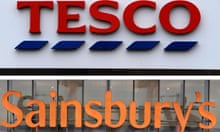
Tesco and Sainsbury’s may need to raise cash to fight price war

Does the Compass chief have enough time to get his hands dirty at Tesco?
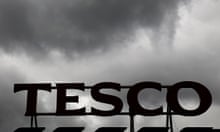
Passed their use-by date? The businesses Tesco could sell

High-flying Tesco executives come down to earth as jets division wound up

Warren Buffett: ‘Tesco was a huge mistake’

Tesco ditches plans to build huge superstore on Margate seafront

Sainsbury's puts poster in window that customers were never meant to see …
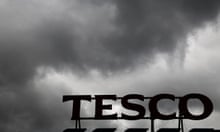
Tesco suspends another executive after profits debacle

Tesco turns to Ikea and Compass to beef up board
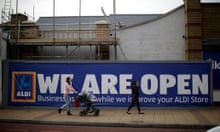
Sainsbury’s - what the analysts say
Comments (…), most viewed.
- Work & Careers
- Life & Arts
Tesco faces fresh lawsuit over past accounting irregularities
Try unlimited access only $1 for 4 weeks.
Then $75 per month. Complete digital access to quality FT journalism on any device. Cancel anytime during your trial.
- Global news & analysis
- Expert opinion
- Special features
- FirstFT newsletter
- Videos & Podcasts
- Android & iOS app
- FT Edit app
- 10 gift articles per month
Explore more offers.
Standard digital.
- FT Digital Edition
Premium Digital
Print + premium digital, ft professional, weekend print + standard digital, weekend print + premium digital.
Essential digital access to quality FT journalism on any device. Pay a year upfront and save 20%.
- Global news & analysis
- Exclusive FT analysis
- FT App on Android & iOS
- FirstFT: the day's biggest stories
- 20+ curated newsletters
- Follow topics & set alerts with myFT
- FT Videos & Podcasts
- 20 monthly gift articles to share
- Lex: FT's flagship investment column
- 15+ Premium newsletters by leading experts
- FT Digital Edition: our digitised print edition
- Weekday Print Edition
- Videos & Podcasts
- Premium newsletters
- 10 additional gift articles per month
- FT Weekend Print delivery
- Everything in Standard Digital
- Everything in Premium Digital
Complete digital access to quality FT journalism with expert analysis from industry leaders. Pay a year upfront and save 20%.
- 10 monthly gift articles to share
- Everything in Print
- Make and share highlights
- FT Workspace
- Markets data widget
- Subscription Manager
- Workflow integrations
- Occasional readers go free
- Volume discount
Terms & Conditions apply
Explore our full range of subscriptions.
Why the ft.
See why over a million readers pay to read the Financial Times.

IMAGES
COMMENTS
However, the accounting scandal of Tesco PLC in 2014 has been reported to be one of the influential events that declined the overall reputation of the company. Because of this corporate governance failure, several people of the company were suspended including four executives as well that were engaged in the accounting fraud (Awolowo, 2016, p.23).
This case study explores what went wrong in Tesco that resulted in the fraud of accounting misstatements of the magnitude of £263 million, why the fraud remained undetected over a number of years ...
In 2017, Tesco reached an agreement with authorities over the scandal that saw it pay £85 million in compensation payouts to investors and £129 million in fines and costs. The Deferred Prosecution Agreement (DPA) with the SFO saw the company escape prosecution but book a total hit of £235 million. The agreement came as Britain's financial ...
This case describes the accounting fraud at Tesco Stores Limited (TSL), which was discovered by a senior accountant in TSL's finance department. The accountant was concerned about TSL's handling of commercial income, which, according to the accountant, overstated Tesco's profit by an estimated £246 million. Beyond the accounting issue ...
Oct. 29, 2014. LONDON — The Serious Fraud Office in Britain has started a criminal investigation into accounting irregularities at Tesco, it said Wednesday, adding to the woes of the country's ...
News of Tesco's accounting scandal sent shockwaves through the City in 2014 and raised serious questions over how a FTSE 100 firm could get away with "cooking the books".
Tesco is close to settling the final meaningful legal action from shareholders over the 2014 accounting crisis that brought Britain's biggest retailer to the brink of financial disaster. Sky News ...
Carl Rogberg, 52, a former UK finance director at Tesco, was one of three former executives at the chain to face a criminal trial for their alleged role in the accounting scandal. The retailer ...
PwC has escaped official censure over the Tesco accounting scandal, after the UK's accountancy watchdog closed its investigation into the auditor's approval of the grocer's flawed financial ...
Tesco's accounting scandal has cost far more than the £214m in fines and compensation payments announced on Tuesday. The affair burst into public view in 2014 with the revelation that Britain ...
The voluntary disclosure of the misrepresentation of financial statements by the management of the UK-based retailer Tesco Plc (Tesco) in September 2014 impacted the market price of its share, affecting the investment value of its shareholders. ... The present case study 'Accounting Scandal at Tesco' focuses on the events that led to the ...
The investigation commenced in December 2014 with the following scope: "The conduct of Members and a Member Firm in relation to the preparation, approval and audit of the financial statements of Tesco plc for the financial years ended 25 February 2012, 23 February 2013 and 22 February 2014 and the preparation, approval and review of financial ...
The prosecution claimed that Tesco and the stock market's credibility had been "undermined" and alleged that they had "cooked the books". All three maintained their innocence and have all been cleared. Tesco chief executive Dave Lewis has attempted to draw a line under the scandal (Gareth Fuller/PA) Dave Lewis, Mr Clarke's successor ...
11/1 1/2016. 1. T ESCO SCANDAL. G ROUP PROJECT: C RESPI CLAUDIO 3001. G IANMARCO PERSIANI 3033. S IMONE RIGATTI 3058. Course: 223 8-Financial R eporting-1617_T2. Professor: Xhanti Gkou g kou si.
7th October 2021. Tesco has handed out £193 million to settle an accounting scandal from 2014, a larger number than it received from the UK's fraud watchdog. The Big 4 grocer said it had ...
Dec 17, 2014--Listen. Share. The Tesco accounting scandal is a classic case of what appears to be the result of "cooking the books" to show inflated incomes and understated costs: it ...
News of Tesco's accounting scandal sent shockwaves through the City in 2014 and raised serious questions over how a FTSE 100 firm could get away with "cooking the books". The grocery giant issued a series of profit warnings in the run up to the September announcement about overstated profits as the group reeled under the disastrous reign ...
The supermarket has inked a deal with the Serious Fraud Office two and a half years after its dirty laundry came to light. It's been an extraordinarily tough few years for Tesco. Back in 2010 it was at the top of its game, growing fast and leaving the rest of Britain's food retailers in its wake. But fierce competition, a series of over ...
We would like to show you a description here but the site won't allow us.
The New York-based fund manager is claiming it suffered losses of $212m allegedly caused by the accounting irregularities. Manning & Napier's case is the second lawsuit filed against Tesco in ...
The Fall of Tesco On 2014, news of Tesco's accounting scandal s hocked the world with a classic case of "cooking the books. " The accusation was mainly with respect to the recognition of commercial income. Normally for a grocery store, the primary source of revenue was in the form of the margins gained by selling groceries.
After the accounting scandal in Tesco PLC, the legal authorities and board of directors significantly took this matter under consideration and wiped off £2bn of the net value from the UK's biggest retailing company. Following the accounting fraud, Tesco PLC was alleged to pay a £500m fine by the end of the year and more than 125 investors filed against the accounting fraud made by Tesco ...